How Starmer, Macron and Merz Tried to Halt the War in Gaza

© Leon Neal/Getty Images


© Leon Neal/Getty Images


© Eduardo Munoz/Reuters
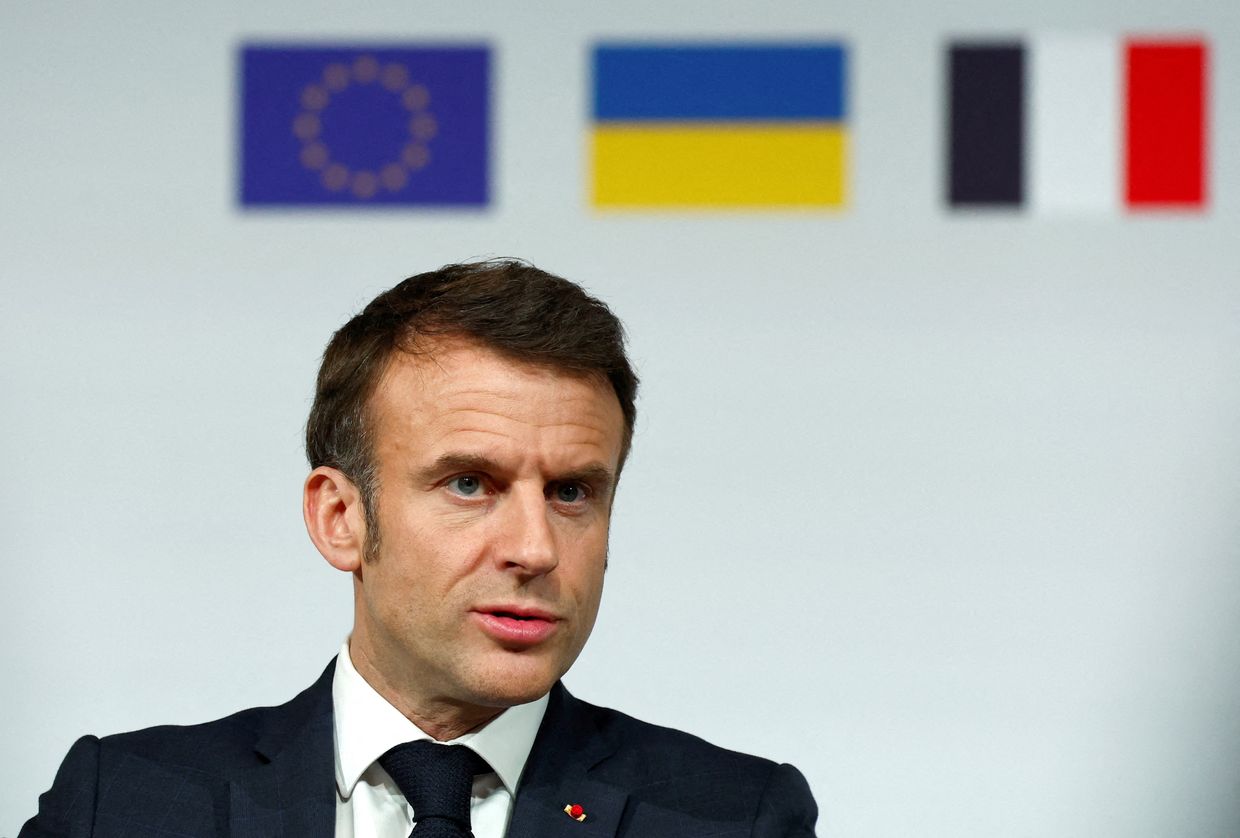

Editor's note: The story was updated as the President's Office confirmed that following the call with Vladimir Putin, Emmanuel Macron also called Volodymyr Zelensky.
French President Emmanuel Macron and his Russian counterpart Vladimir Putin held a call on July 1 for the first time since 2022, discussing Russia's war against Ukraine and the conflict in the Middle East, the Kremlin's press service reported.
The conversation between the two leaders took place as the Russian army continues to advance along the front line, trying to gain a foothold in Sumy Oblast and enter Dnipropetrovsk Oblast.
Moscow has repeatedly rejected the U.S.-backed ceasefire proposal, stalling peace talks with Ukraine.
Following the call with Putin, Macron also called Zelensky to discuss his conversation with the Russian president, a source in the President's Office told the Kyiv Independent.
The call between Zelensky and Macron was "constructive," the source added. Putin's position remained unchanged: he does not show any willingness to end the war in Ukraine, according to the source.
The call between Putin and Macron lasted over two hours, BFM TV reported, citing the Elysee Palace.
During the conversation with Macron, Putin called Russian war "a direct consequence of the policy of Western powers" that "ignored Russia's security interests, created an anti-Russian bridgehead in Ukraine," the Kremlin said.
Macron, in turn, noted France's unwavering support for Ukraine's sovereignty and territorial integrity, Suspilne reported, citing the Elysee Palace.
The French president also called for "a ceasefire to be established as soon as possible and for negotiations to begin."
The leaders will continue to discuss Russia's war in Ukraine, according to the Elysee Palace.
The presidents also discussed the situation in the Middle East regarding the Iranian-Israeli conflict and the U.S. strikes on Iranian nuclear facilities.
Macron frequently called Putin in the first year of Russia's full-scale invasion of Ukraine. Their previous call took place in September 2022.
 The Kyiv IndependentOleg Sukhov
The Kyiv IndependentOleg Sukhov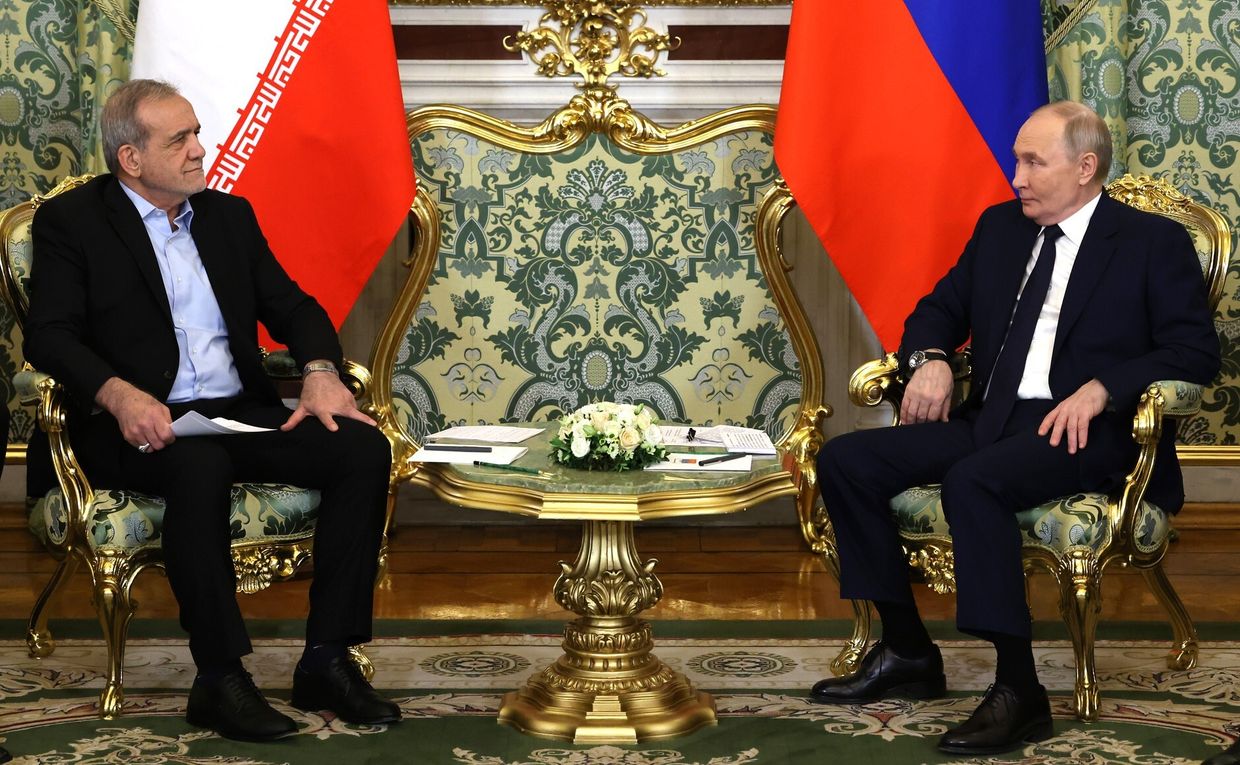


The Iranian Foreign Ministry has summoned the Ukrainian charge d'affaires to protest "inappropriate remarks" by Kyiv regarding recent Israeli and U.S. strikes on Iran, the ministry said on July 1.
Tehran threatened Ukraine with unspecified "consequences" should such statements be repeated.
The diplomatic spat follows a wave of Israeli and U.S. air strikes targeting Iran's nuclear program, with Iranian forces attacking Israel and a U.S. base in Qatar in response.
Highlighting Iran's military support for Russian aggression against Ukraine, Kyiv responded by calling for the dismantling of the Iranian nuclear program to prevent it from threatening the Middle East or the wider world.
In response, Shahram Farsaei, head of the Iranian Foreign Ministry's Eurasian affairs department, relayed a protest note to Ukraine via the Ukrainian envoy in Iran, Kyrylo Pozdniakov. The ministry did not specify what exact comments prompted the reaction from the Iranian side.
Tehran also said that Ukrainian officials have "disregarded Ukraine's international legal obligations concerning respect for the principles and purposes of the U.N. Charter as well as the four Geneva Conventions."
Iran has provided ballistic missiles and thousands of Shahed drones to Russia, directly backing its armed aggression in Ukraine, itself launched in violation of international law and the U.N. Charter.
Moscow has backed Iran diplomatically after U.S. and Israeli attacks, urging a response from the U.N. Security Council and calling the attacks an "unprovoked aggression."
 The Kyiv IndependentOleg Sukhov
The Kyiv IndependentOleg Sukhov
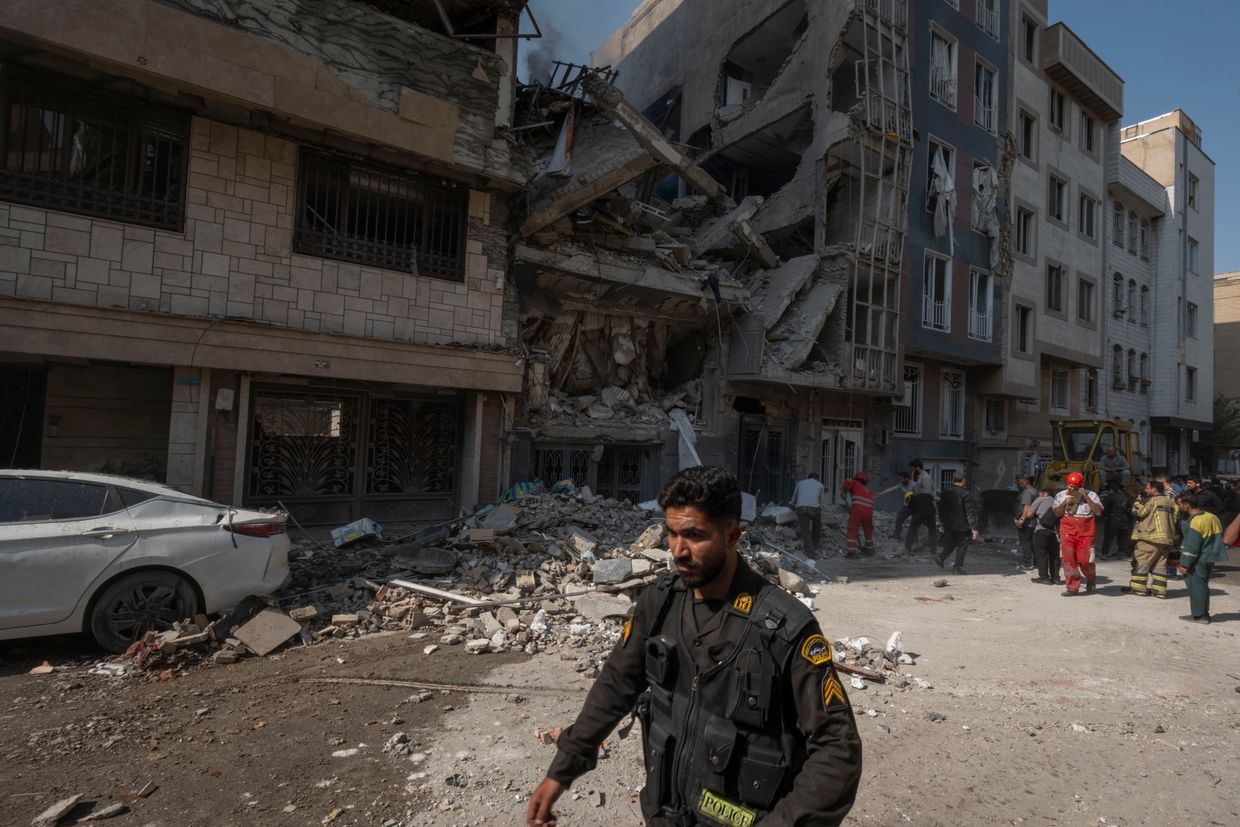

CIA Director John Ratcliffe told U.S. lawmakers that recent American military strikes dealt a major blow to Iran’s nuclear program by destroying the country’s only metal conversion facility, a U.S. official told Associated Press on June 29.
Speaking on condition of anonymity due to the sensitivity of the intelligence, the official explained that Ratcliffe outlined the significance of the strike during a classified briefing last week, calling it a major setback that would take Tehran years to recover from.
Ratcliffe also told lawmakers that most of Iran’s stockpile of enriched uranium likely remains buried under rubble at the Isfahan and Fordo nuclear sites, two of the three key facilities targeted by U.S. strikes.
While the uranium may still be intact, the official emphasized that the destruction of the metal conversion facility has left Iran without a crucial component needed to build a nuclear weapon. "You can’t do a nuclear weapon without a conversion facility," Secretary of State Marco Rubio said during the NATO summit. "We can’t even find where it is, where it used to be on the map. You can’t even find where it used to be because the whole thing is just blackened out. It’s gone. It’s wiped out."
President Donald Trump has continued to defend the operation, which came just before a ceasefire between Israel and Iran took effect last Tuesday.
"It was obliterating like nobody’s ever seen before," Trump said in an interview with Fox News. "And that meant the end to their nuclear ambitions, at least for a period of time." Defense Secretary Pete Hegseth echoed that assessment, stating the sites were “destroyed.”
A preliminary report by the U.S. Defense Intelligence Agency, however, concluded the strikes inflicted significant damage but did not completely demolish the Fordo, Natanz, and Isfahan facilities.
Rafael Grossi, Director General of the International Atomic Energy Agency, said on CBS’ "Face the Nation" that three major Iranian nuclear sites with “capabilities in terms of treatment, conversion and enrichment of uranium have been destroyed to an important degree.”
However, he cautioned against overstating the damage. “Some is still standing,” Grossi said, adding, “If they so wish, they will be able to start doing this again.” He emphasized that inspectors must be allowed in to fully assess the extent of the destruction. “Frankly speaking, one cannot claim that everything has disappeared, and there is nothing there,” he said.
The destroyed metal conversion facility, located at the Isfahan nuclear site, had played a central role in Iran’s nuclear weapons development. The facility’s function—to convert enriched uranium gas into dense metal—is a critical step in producing the explosive core of a nuclear bomb. Ratcliffe emphasized this point during the classified hearing, describing the facility’s elimination as a strategic win that effectively undercuts Iran’s ability to weaponize its uranium.
Ratcliffe also told lawmakers that the 12-day U.S. assault severely weakened Iran’s air defense systems. According to the U.S. official, the CIA director explained that Iran now lacks the capability to defend against future Israeli airstrikes, making any attempts to rebuild its nuclear program highly vulnerable.
 The Kyiv IndependentDmytro Basmat
The Kyiv IndependentDmytro Basmat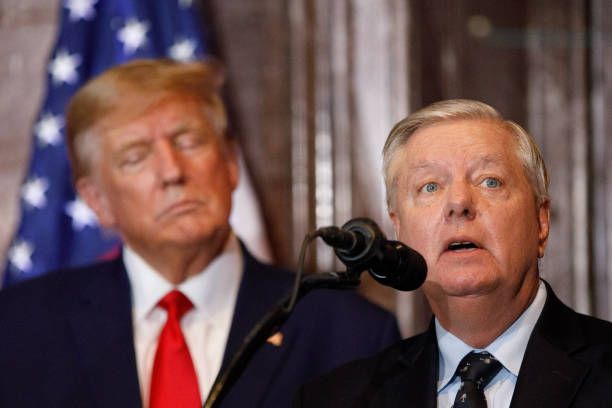
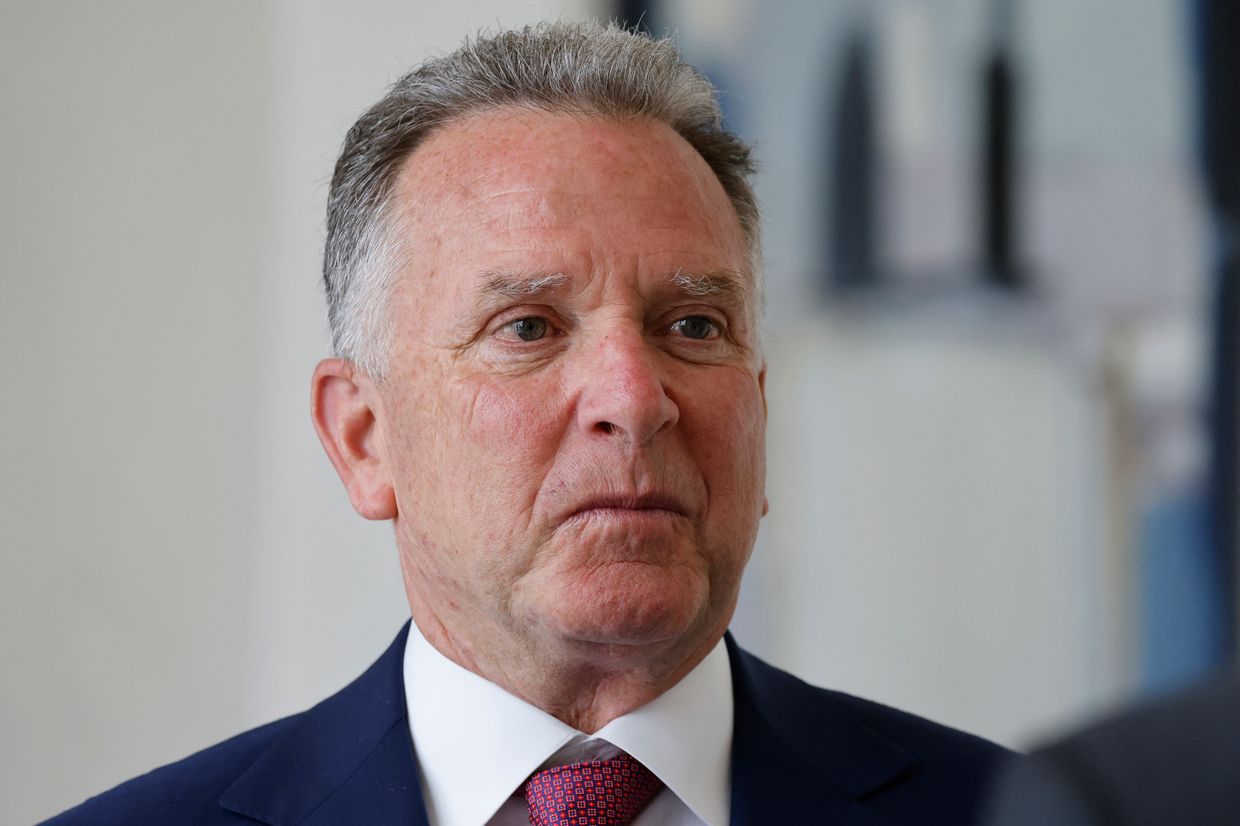

U.S. Special Envoy to the Middle East Steve Witkoff condemned on June 24 the leak of an intelligence assessment that undercuts U.S. President Donald Trump's claims of having "obliterated" Iran's nuclear program.
His remarks follow a leaked U.S. Defense Intelligence Agency (DIA) assessment, reported by CNN, which found that strikes on three major Iranian nuclear sites, Fordow, Natanz, and Isfahan, did not destroy the core of Tehran's nuclear program. Instead, the intelligence suggests the attacks likely delayed Iran's progress by "a few months."
"It goes without saying that leaking that type of information, whatever the information, whatever side it comes out on, is outrageous. It's treasonous," Witkoff said during an appearance on Fox News. "It ought to be investigated, and whoever is responsible should be held accountable."
Witkoff, who served as Assistant to the U.S. president and led peace mission efforts during the recent conflict between Israel and Iran, defended Trump's portrayal of the U.S.-led strikes as a decisive success.
"The objective was to eliminate enrichment in Iran… and he achieved that objective," Witkoff said, adding that he personally reviewed damage assessments and saw "no doubt" that key nuclear infrastructure was destroyed.
The report leaked in media contradicts public statements from Trump and Defense Secretary Pete Hegseth, who had described the operation as delivering "total obliteration." Trump, for his part, stood by the claim on June 24. "Those targets were obliterated," he said. "That place is demolished."
According to the DIA assessment, though the strikes damaged above-ground infrastructure, most of the centrifuges and the enriched uranium stockpile reportedly remain intact. The assessment also noted that underground sections of the sites, where Iran's most sensitive work is done, were largely unaffected. Two officials told CNN that Iran likely retains operational nuclear facilities that were not targeted.
Witkoff dismissed the report as "preposterous," insisting that the Isfahan conversion facility, critical to Iran's ability to weaponize enriched uranium, was "completely destroyed" by a 30,000-pound bunker buster bomb.
"Without conversion, you can't begin or end enrichment," he said. "They cannot weaponize, even if they've enriched to 90%."
Witkoff also claimed successful targeting of Fordow and Natanz, saying the U.S. dropped more than a dozen bunker busters on the sites that made the facilities inoperable.
The White House acknowledged the assessment’s existence but strongly dismissed it. "This alleged assessment is flat-out wrong and was classified as ‘top secret’ but was still leaked to CNN by an anonymous, low-level loser in the intelligence community," press secretary Karoline Leavitt said.
"The leaking of this alleged assessment is a clear attempt to demean President Trump, and discredit the brave fighter pilots who conducted a perfectly executed mission to obliterate Iran’s nuclear program. Everyone knows what happens when you drop fourteen 30,000 pound bombs perfectly on their targets: total obliteration."
Trump, for his part, stood by his assessment of the mission's success. "I think it’s been completely demolished," he said on June 24. "Those pilots hit their targets. Those targets were obliterated, and the pilots should be given credit.” Asked if Iran could rebuild, Trump responded: "That place is under rock. That place is demolished."
While both Trump and Hegseth praised the strikes as decisive, others expressed caution. Chairman of the Joint Chiefs of Staff Dan Caine said it was "way too early" to determine whether Iran retained nuclear capabilities.
 The Kyiv IndependentKateryna Hodunova
The Kyiv IndependentKateryna Hodunova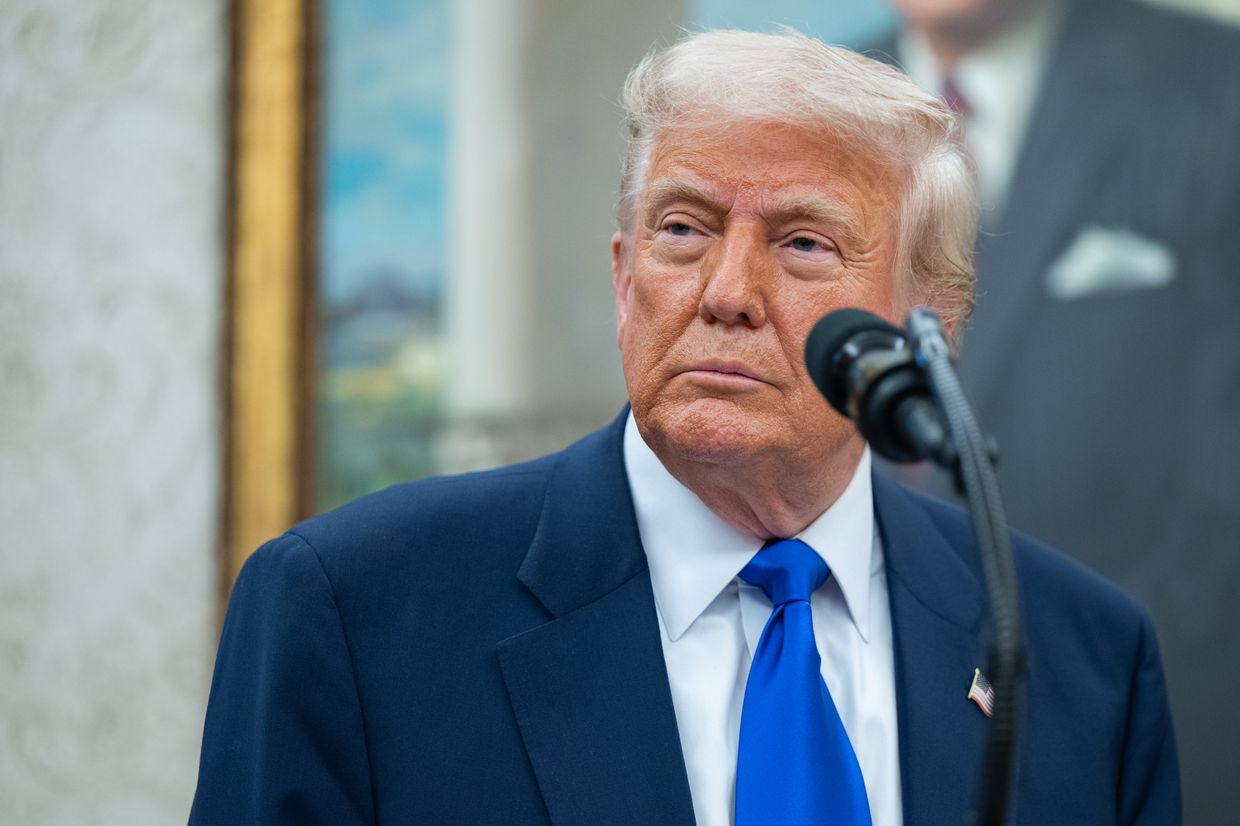
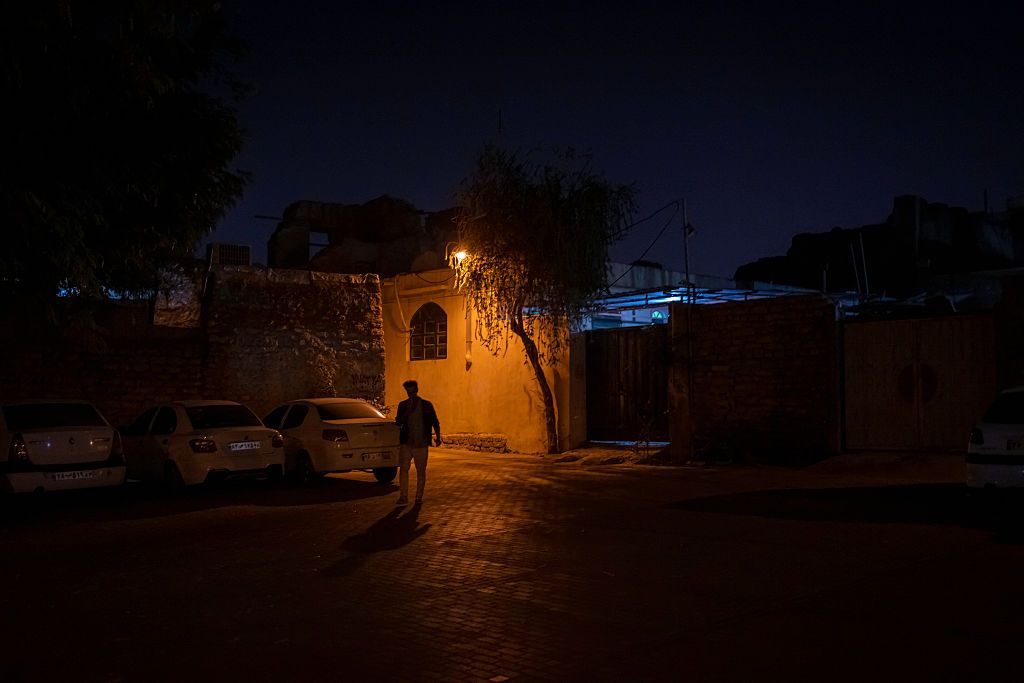

Recent U.S. strikes on three Iranian nuclear facilities did not eliminate the core components of Tehran’s nuclear program and likely delayed it by only a few months, according to an early assessment by the U.S. Defense Intelligence Agency (DIA), CNN reported on June 24, citing four sources familiar with the findings.
The analysis, based on a battle damage report from U.S. Central Command, contradicts public statements by President Donald Trump and Defense Secretary Pete Hegseth, who claimed the operation had "obliterated" Iran’s nuclear capabilities.
"So the (DIA) assessment is that the U.S. set them back maybe a few months, tops," one source told CNN, adding that Iran’s stockpile of enriched uranium was not destroyed and that most centrifuges remain “intact.”
The White House acknowledged the assessment’s existence but strongly dismissed it. "This alleged assessment is flat-out wrong and was classified as ‘top secret’ but was still leaked to CNN by an anonymous, low-level loser in the intelligence community," press secretary Karoline Leavitt said. “The leaking of this alleged assessment is a clear attempt to demean President Trump, and discredit the brave fighter pilots who conducted a perfectly executed mission to obliterate Iran’s nuclear program. Everyone knows what happens when you drop fourteen 30,000 pound bombs perfectly on their targets: total obliteration.”
Trump, for his part, stood by his assessment of the mission's success. “I think it’s been completely demolished,” he said on Tuesday. “Those pilots hit their targets. Those targets were obliterated, and the pilots should be given credit.” Asked if Iran could rebuild, Trump responded: “That place is under rock. That place is demolished.”
While both Trump and Hegseth praised the strikes as decisive, others expressed caution. Chairman of the Joint Chiefs of Staff Dan Caine said it was “way too early” to determine whether Iran retained nuclear capabilities.
Republican Rep. Michael McCaul, former chair of the House Foreign Affairs Committee, also avoided endorsing the president’s characterization. “I’ve been briefed on this plan in the past, and it was never meant to completely destroy the nuclear facilities, but rather cause significant damage,” McCaul told CNN. “But it was always known to be a temporary setback.”
The DIA’s assessment reportedly found that damage at the Fordow, Natanz, and Isfahan sites was mostly limited to aboveground infrastructure, such as power systems and uranium metal processing buildings. The underground facilities—where Iran's most sensitive nuclear work takes place—were largely unaffected, the sources said.
According to CNN, Israel had been carrying out its own strikes on Iranian nuclear facilities prior to the U.S. operation, but relied on U.S. B-2 bombers equipped with 30,000-pound “bunker buster” bombs to finish the job. Despite over a dozen bombs being dropped on Fordow and Natanz, the sites’ key components remain intact, the sources said.
The U.S. also reportedly used Tomahawk missiles launched from a submarine to target Isfahan, rather than deploying bunker busters. A source said this was due to doubts over whether the bombs could penetrate Isfahan’s deep underground levels, which are believed to be even more fortified than Fordow.
Two sources also told CNN that Iran likely retains undisclosed nuclear facilities that were not targeted and remain operational.
Meanwhile, classified briefings for lawmakers on the strikes were postponed. The all-Senate briefing was rescheduled for Thursday, and the House briefing’s new date remains unclear.
 The Kyiv IndependentAndrew Chakhoyan
The Kyiv IndependentAndrew Chakhoyan


Editor's note: This is a developing story and is being updated.
Israel launched airstrikes on Iranian territory on June 24, defying U.S. President Donald Trump's call for calm just few hours after he announced a ceasefire between the two countries, according to the Times of Israel.
The attack comes less than an hour after Trump told reporters that "Israel needs to calm down" as he criticized both countries for undermining the ceasefire he says he brokered.
"We basically have two countries that have been fighting so long and so hard that they don't know what the f*ck they're doing," Trump said on June 24.
Hours after Trump said the ceasefire came into effect, Israel accused Tehran of launching missiles toward its territory — an allegation Iran denied.
Following Iran's alleged missile strike, Trump and Israeli Prime Minister Benjamin Netanyahu reportedly spoke on the phone and agreed that Israel would carry out a limited response. The air force strike targeted a single "symbolic" radar installation.
Ahead of Israel's strike, Trump wrote on Truth Social that all of the Israeli planes "turn around and head home, while doing a friendly 'Plane Wave" to Iran."
According to the Times of Israel, Israeli officials said Trump was still sending messages promising that Israel would not attack Iran "after he knew we would attack," a senior official told the Kan public broadcaster.
 The Kyiv IndependentKollen Post
The Kyiv IndependentKollen Post
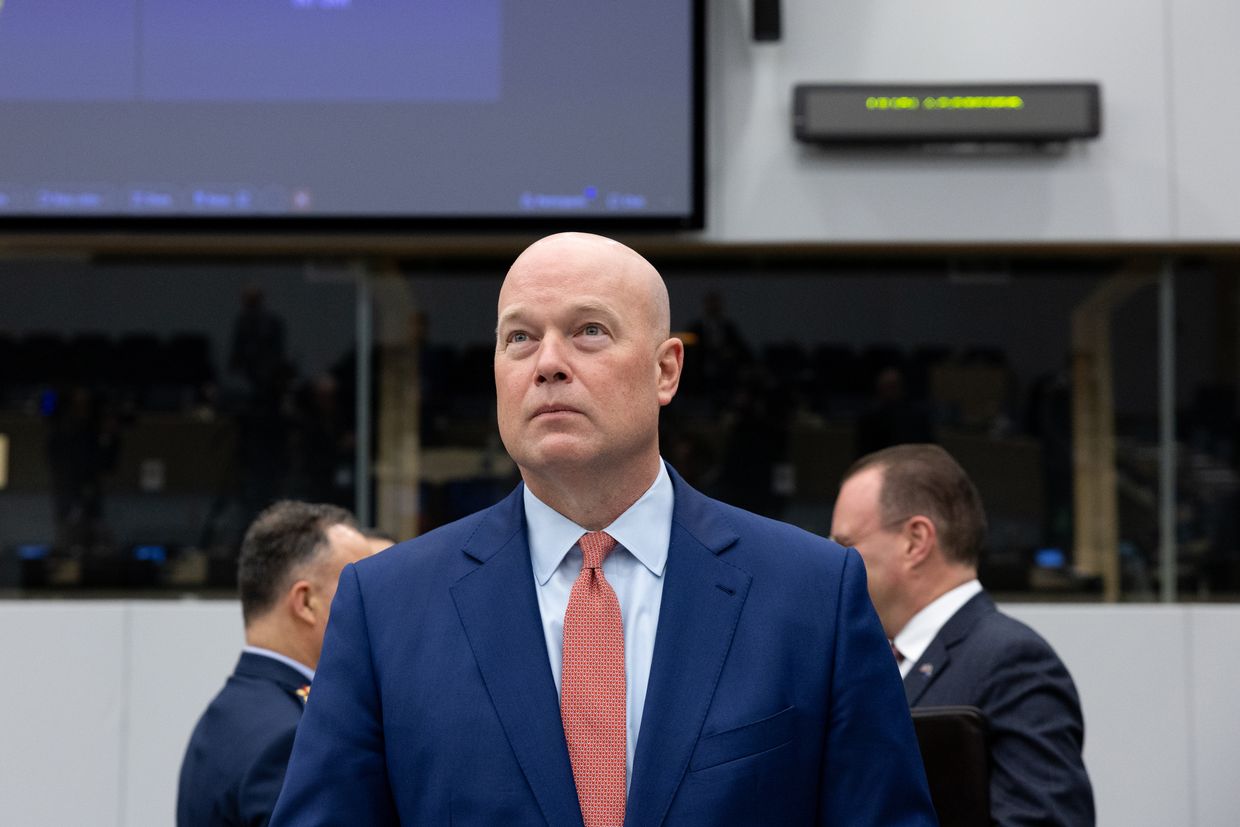

U.S. airstrikes on Iranian nuclear facilities demonstrated how precision military action can achieve rapid peace, U.S. Ambassador to NATO Matthew Whitaker said on June 24, speaking at the NATO Public Forum held alongside the alliance summit in The Hague.
"(The U.S. attack on Iran's nuclear facilities) shows how you get that peace through that strength, and that strength is amplified and enhanced by this alliance (NATO)," Whitaker said, referring to the June 21 American strikes on Iran's Fordow, Natanz and Esfahan nuclear sites, which U.S. President Donald Trump called a "spectacular success."
Whitaker emphasized that the U.S. remains a reliable ally and a cornerstone of NATO's deterrence. "The U.S. isn't going anywhere," he said. "The U.S. has certain capabilities that you want an alliance to have."
He added that recent U.S. military operations underscore the importance of defense investments by all member states. "If all of (NATO) countries elevate investments in their defense, I think we will have peace for generations,” Whitaker said.
The U.S. strikes on Iran came amid escalating tensions between Israel and Tehran. Trump said the strikes were intended to push Iran toward negotiations, warning that the alternative would be "tragedy for Iran far greater than we have witnessed."
Trump claimed that a ceasefire between Iran and Israel was achieved on June 24. Just hours later, Israel accused Tehran of launching missiles toward its territory — an allegation Iran denied.
Whitaker said the White House hopes the U.S. will also bring to an end Russia's war in Ukraine. He added that there is "no purely military solution" to the war in Ukraine.
Unlike past U.S. administrations, Trump has not introduced new sanctions against Russia despite increasing Russian missile and drone attacks on civilians.
On June 24, the first day of the NATO summit, Russia launched a ballistic missile strike on the Ukrainian city of Dnipro, killing at least three people and injuring more than 20, including two children, according to regional officials.
Kyiv has long been advocating for "peace through strength" policy, calling for stronger sanctions against Russia and increased military aid to Ukraine.
 The Kyiv IndependentAnna Fratsyvir
The Kyiv IndependentAnna Fratsyvir
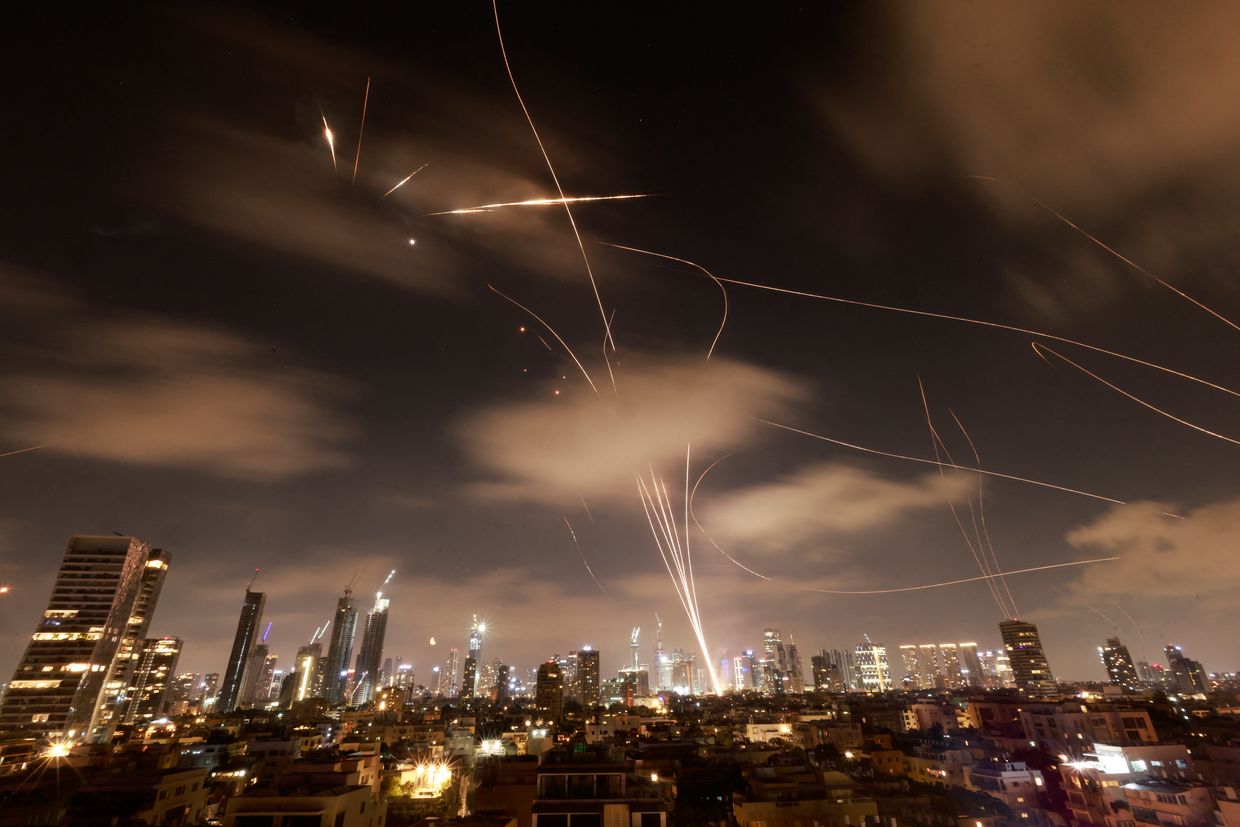

Editor's note: This story was updated to include comments made by U.S. President Donald Trump.
Iran launched missiles toward Israel on June 24, just hours after U.S. President Donald Trump announced a ceasefire between the two countries had come into effect, the Israeli military said. Iran denied the accusation.
"A short while ago, sirens sounded in northern Israel following the identification of missiles launched from Iran toward the State of Israel," the Israel Defense Forces (IDF) said in a statement.
"At this time, the IAF (Israeli Air Force) is operating to intercept and strike where necessary to eliminate the threat," the statement read.
Israeli Defense Minister Israel Katz instructed the army to respond forcefully to Iran's ceasefire violation, Reuters reported. Katz said that Israel will continue to strike Iran after the "utter violation" of the ceasefire.
Shortly after Israel's statement, Iranian state media reported that Tehran denied firing missiles at Israel after the ceasefire began.
A senior security official in Iran told CNN that “no missiles have been fired at the enemy" after the ceasefire.
The reports come after days of escalating hostilities in the Middle East. Early on June 24, Trump declared in a Truth Social post that a ceasefire had begun, writing, "The ceasefire is now in effect. Please do not violate it!"
Israeli Prime Minister Benjamin Netanyahu said on June 24 Israel had agreed to Trump's ceasefire proposal, claiming that Israel had "achieved its goal of removing the Iranian nuclear and ballistic missile threat," according to Reuters.
Trump said later on June 24 that Israel needs to "calm down" after what he described as violations of the ceasefire by both sides.
"I gotta get Israel to calm down now," Trump said as he left the White House. "Israel, as soon as we made the deal, they came out and they dropped a load of bombs, the likes of which I've never seen before, the biggest load that we've seen."
He added: "We basically have two countries that have been fighting so long and so hard that they don't know what the f*ck they're doing."
Trump also wrote on Truth Social that "Israel is not going to attack Iran."
"Nobody is going to be hurt. The Ceasefire in in the effect," U.S. president wrote,
Previously, the U.S. launched airstrikes on Iran's nuclear facilities in Fordow, Natanz, and Esfahan on June 21. In response, Iran fired missiles at U.S. military bases in the region, including at least 10 targeting Al Udeid Air Base in Qatar and one aimed at a base in Iraq.
The Pentagon confirmed that Iran launched several short- and medium-range missiles at Al Udeid but reported no U.S. casualties. Trump dismissed the attacks as "limited and largely ineffective."
Iran is a key arms supplier to Russia, providing Shahed drones used in attacks on Ukrainian cities and pledging to send ballistic missiles. Israel, while home to a significant Russian-speaking population, has not joined Western sanctions against Moscow.
 The Kyiv IndependentAnna Fratsyvir
The Kyiv IndependentAnna Fratsyvir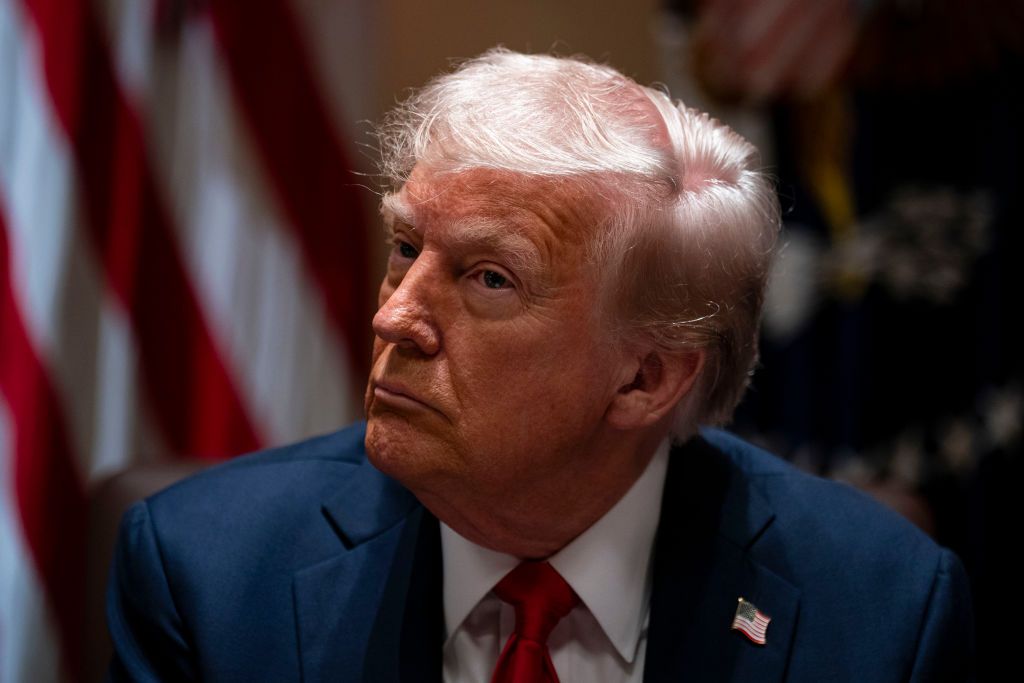


U.S. President Donald Trump announced on June 24 that a ceasefire between Iran and Israel had come into effect, following the U.S. strikes on Iranian nuclear facilities and retaliatory attack on U.S. military base in Qatar.
"The ceasefire is now in effect. Please do not violate it!" Trump said in a post on Truth Social on June 24.
The announcement follows days of intensifying conflict after the U.S. conducted airstrikes on Iranian nuclear facilities on June 21, targeting sites in Fordow, Natanz, and Esfahan.
In response, Iran launched multiple missiles at U.S. military bases in the region, including at least 10 toward the Al Udeid Air Base in Qatar and at least one toward a base in Iraq, Axios reported, citing an Israeli source.
The Pentagon confirmed that Iran fired several short- and medium-range missiles at Al Udeid, but said no American personnel were harmed. Trump downplayed the attack, calling it "limited and largely ineffective."
Israeli Prime Minister Benjamin Netanyahu said on June 24 that Israel has agreed to a U.S.-brokered ceasefire with Iran, thanking Trump for his support in defending Israel and "removing the Iranian nuclear threat," according to Reuters.
"Israel has achieved its goal of removing the Iranian nuclear and ballistic missile threat," Netanyahu said in a statement. "Israel thanks President Trump for his support and participation in removing the Iranian nuclear threat."
Iran is a key arms supplier to Russia, providing Shahed drones used in attacks on Ukrainian cities and pledging to send ballistic missiles. Israel, while home to a significant Russian-speaking population, has not joined Western sanctions against Moscow.
Tensions between Iran and Israel had already been rising after Iran launched missile strikes on Tel Aviv and other Israeli cities on June 13, killing multiple civilians, including five Ukrainian nationals. The attack came in retaliation for Israeli military action.
Trump, who has long styled himself as a dealmaker and peacemaker, has come under criticism for his failure to deliver on promises to reach a ceasefire between Russia and Ukraine. During his electoral campaign, he pledged to end the war between Russia and Ukraine within 24 hours of taking office. More than 100 days after Ukraine accepted a U.S.-backed proposal for a ceasefire, no progress has been made.
"It has been exactly 100 days since Ukraine unconditionally accepted the U.S. peace proposal to completely cease fire, put an end to the killing, and move forward with a genuine peace process," Ukrainian Foreign Minister Andrii Sybiha said on June 19. "Russia continues to choose war."
Ukraine backed the proposal during talks in Jeddah on March 11, agreeing to a 30-day unconditional ceasefire. Russia has rejected the offer, continuing its assault on Ukrainian cities and pushing for maximalist demands.
"It is time to act now and force Russia to peace," Sybiha said. "Peace through strength, increased sanctions, and enhanced capabilities for Ukraine."
 The Kyiv IndependentThe Kyiv Independent news desk
The Kyiv IndependentThe Kyiv Independent news desk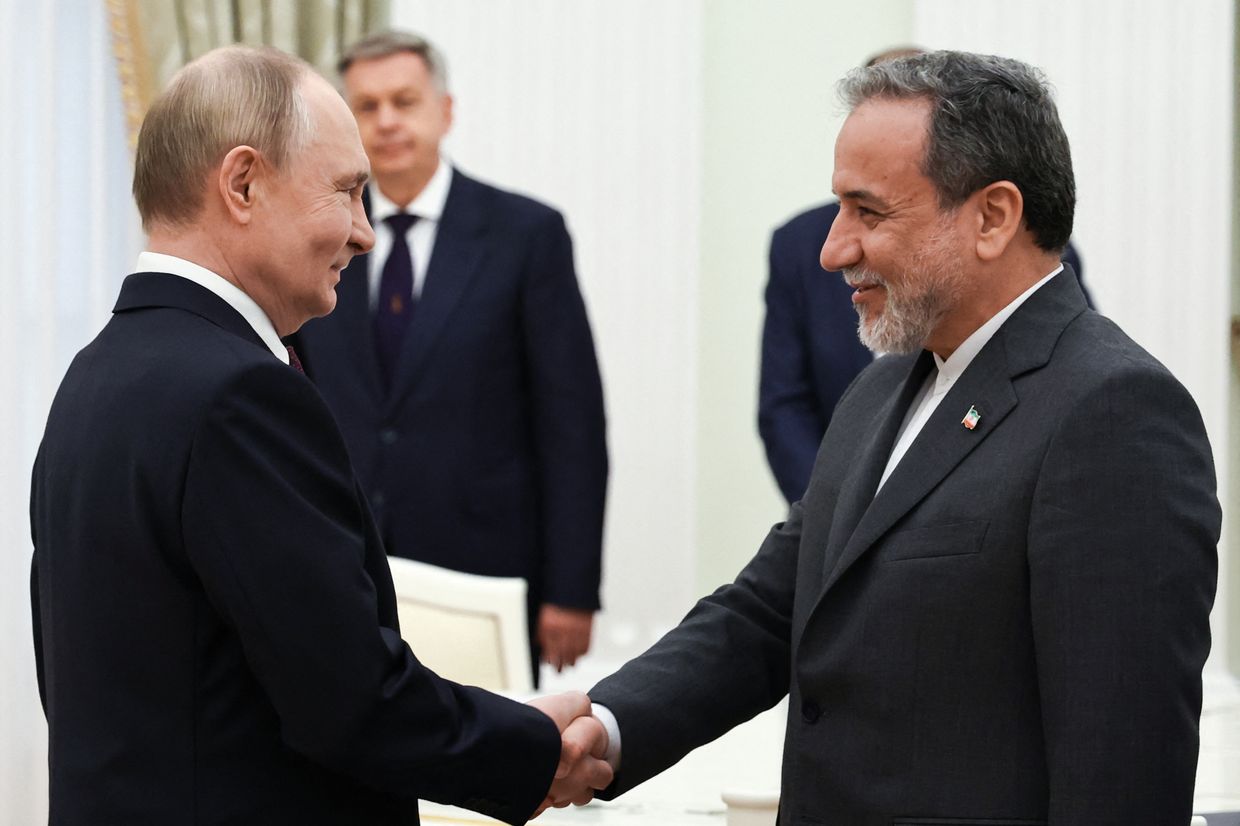
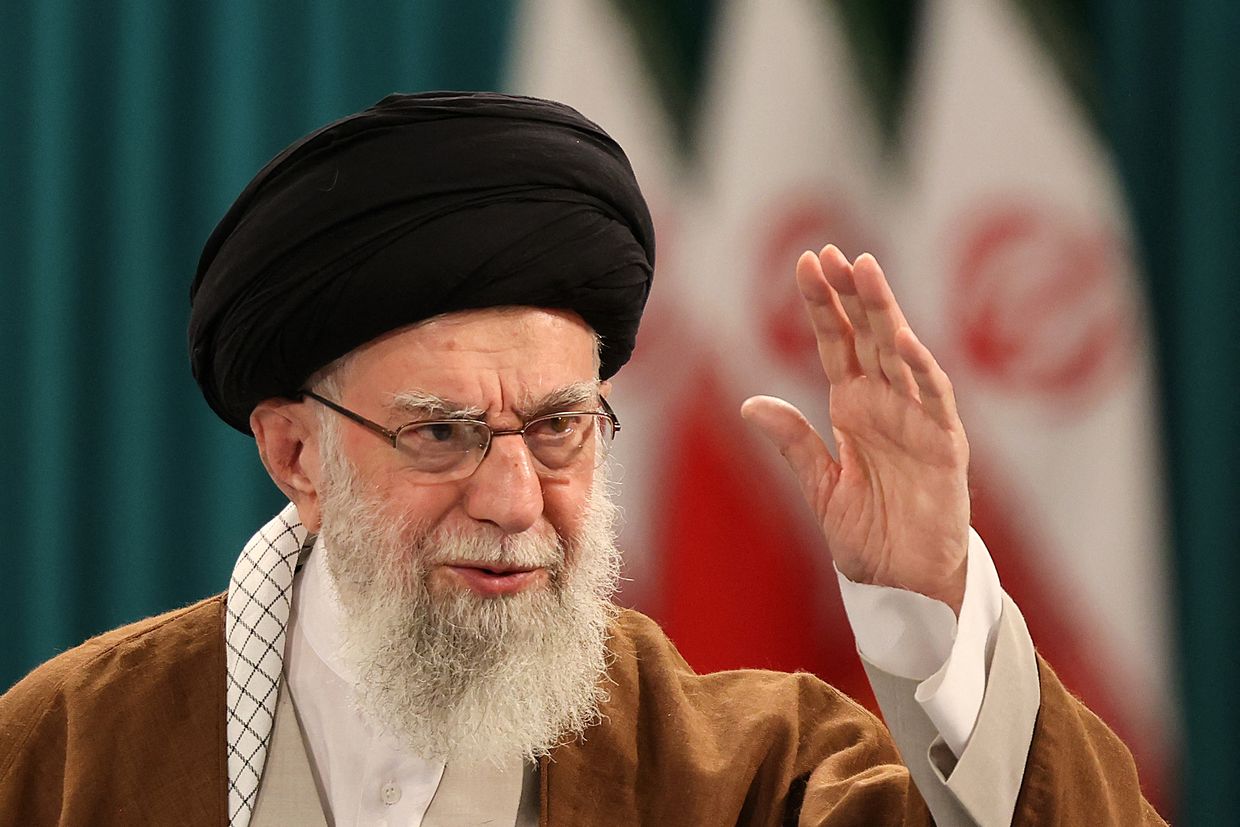

Editor's note: This story is being updated.
Iran launched multiple missiles at U.S. military bases in the Middle East, targeting sites in Qatar and Iraq, a day after the U.S. conducted air strikes on nuclear sites in Iran.
At least 10 missiles were reportedly fired at the Al Udeid Air Base in Qatar and at least one toward a base in Iraq, Axios reported, citing an Israeli source.
The U.S. Defense Department confirmed that Iran launched several short- and medium-range missiles at Al Udeid Air Base, the New York Times reported. According to the Pentagon, there have been no reports of American casualties.
President Donald Trump downplayed Iran's response to the recent U.S. strike on its nuclear facilities, describing Tehran’s retaliation as limited and largely ineffective. "There have been 14 missiles fired — 13 were knocked down, and 1 was 'set free,' because it was headed in a nonthreatening direction," Trump said in a statement on Truth Social. He emphasized that no Americans were harmed and that the damage was minimal.
Trump went on to say, "Most importantly, they’ve gotten it all out of their ‘system,’ and there will, hopefully, be no further HATE." Ending on a conciliatory note, Trump added that he would "enthusiastically encourage Israel" to pursue peace in the region.
Iranian President Masoud Pezeshkian wrote on X that his country "neither initiated the war nor wanted it, but we will not leave the aggression against the great Iran unanswered."
Iran's targeting of U.S. assets marks a dangerous widening of the conflict, raising fears of further destabilization in the region.
The missile strikes come in response to the June 21 U.S. air campaign that targeted three nuclear facilities in Iran — Fordow, Natanz, and Esfahan — as Washington joined Israel's military operation against Tehran's nuclear program.
The escalation follows Israel's June 13 attack that prompted Iran to retaliate with missile attacks on Tel Aviv and other cities, killing multiple civilians, including five Ukrainian citizens.
Iran is a key supplier of weapons to Russia, including Shahed-type drones and ballistic missiles used in attacks on Ukrainian cities. Israel, which hosts a significant Russian-speaking population, has not joined Western sanctions against Moscow.
On June 13, Kyiv expressed concern over the security situation in the Middle East, describing Tehran as a "source of problems" in the region and beyond.
 The Kyiv IndependentLucy Pakhnyuk
The Kyiv IndependentLucy Pakhnyuk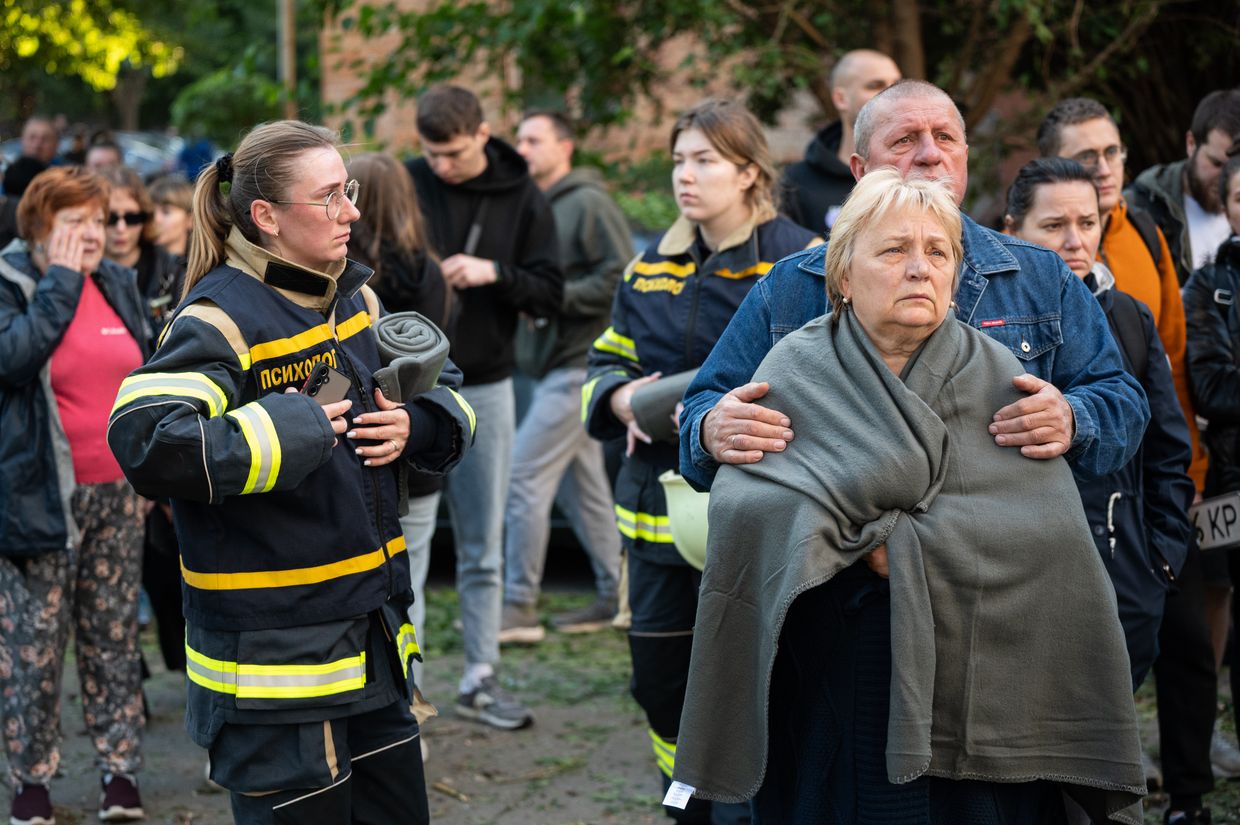


U.S. President Donald Trump on June 23 called for urgent measures to prevent rising oil prices amid escalating tensions with Iran.
"Everyone, keep oil prices down. I'm watching," Trump wrote on Truth Social. "To the Department of Energy: Drill, baby, drill! And I mean now."
The post comes after global oil prices surged on June 13 following a series of Israeli air strikes on Iranian nuclear facilities. The escalation sparked fears of broader conflict in the energy-rich Middle East, home to critical oil shipping routes.
The surge in oil prices risks undermining Western attempts to curb Russia's war funding, as the Kremlin relies heavily on oil revenues to sustain its invasion of Ukraine. President Volodymyr Zelensky has warned that a price surge could further embolden the Kremlin.
On June 21, the U.S. joined Israel in conducting airstrikes that targeted three nuclear facilities in Iran — Fordow, Natanz, and Esfahan. The operation triggered a strong response from Tehran, which threatened to block the Strait of Hormuz, a key global oil transit route.
U.S. Vice President JD Vance responded on June 22 that any Iranian attempt to shut the strategic waterway would "destroy their own economy." The strait is a vital chokepoint for global energy supplies, with nearly a fifth of the world's oil passing through it daily.
Amid the turmoil, the EU has reportedly postponed plans to tighten the $60-per-barrel price cap on Russian crude, originally imposed in December 2022. The mechanism restricts Western firms from shipping or insuring Russian oil sold above that threshold.
The Russian Finance Ministry has relied heavily on energy revenues to sustain defense spending, which hit record highs this year.
 The Kyiv IndependentNatalia Yermak
The Kyiv IndependentNatalia Yermak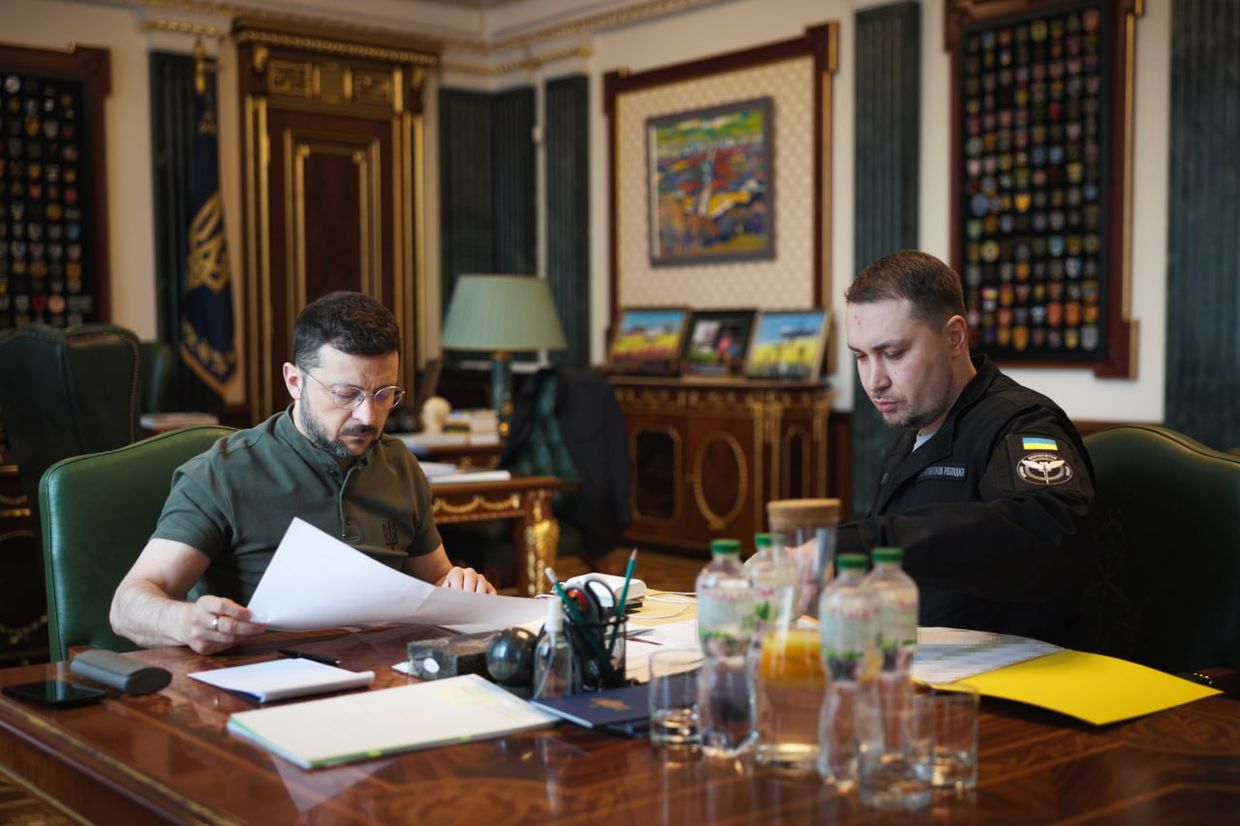
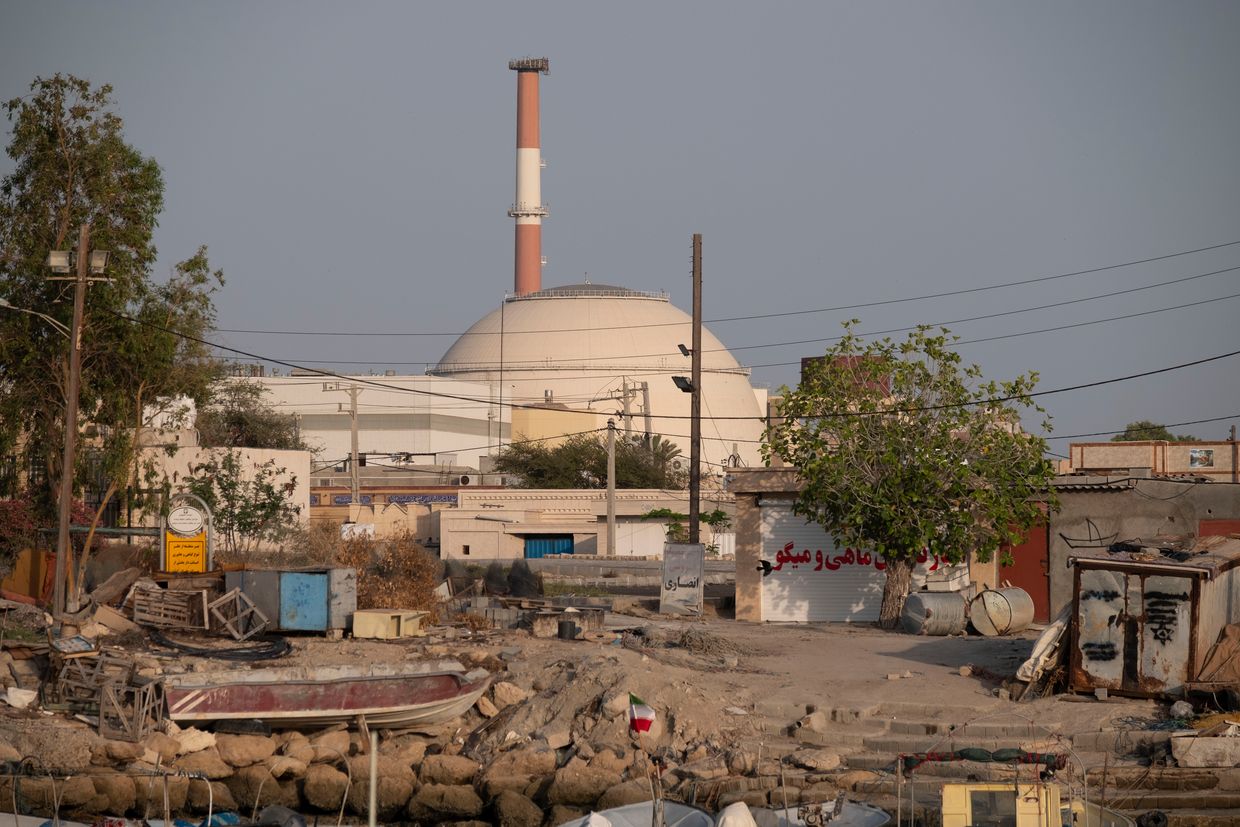

Ukraine’s Foreign Ministry said on June 22 that Iran’s nuclear program must be dismantled to prevent it from threatening the Middle East or the wider world, following U.S. air strikes on Iranian nuclear facilities.
“The Iranian regime’s aggressive actions and long-standing destructive policy aimed at undermining global peace and security – particularly its hostility toward Israel and others – have led to the current situation,” the ministry said in an official statement.
These comments come after U.S. President Donald Trump announced on June 21 that the U.S. air strikes targeted three nuclear sites in Iran, Fordow, Natanz, and Esfahan, joining Israel's campaign against Iran's nuclear program amid the escalating conflict in the Middle East.
The ministry added that Iran continues to destabilize the region through its support of proxy groups and is complicit in Russia’s war against Ukraine.
“Iran is complicit in the crime of aggression against Ukraine. The Iranian regime is providing military assistance to Russia, including the supply of UAVs and technologies that Russia consistently uses to kill people and destroy critical infrastructure,” the statement read.
The ministry noted that although the U.S. and other nations have made peaceful diplomatic efforts to curb Iran’s nuclear ambitions, these efforts have ultimately failed to produce meaningful results.
“As early as this spring, the United States warned Iran of the consequences in the absence of constructive steps.”
Ukraine also asserted its unique moral position on nuclear issues, having given up the world’s third-largest nuclear arsenal in the 1990s, and argued that the elimination of Iran’s nuclear ambitions would enhance global safety.
Meanwhile, Moscow has diplomatically backed Iran after Israel launched the initial air strikes against Iranian military and nuclear targets on June 13, an operation that sparked further waves of aerial attacks from both sides.
In its statement, the Russian Foreign Ministry urged a response from the U.N. Security Council, saying that "the confrontational actions of the U.S. and Israel must be collectively rejected."
 The Kyiv IndependentNatalia Yermak
The Kyiv IndependentNatalia Yermak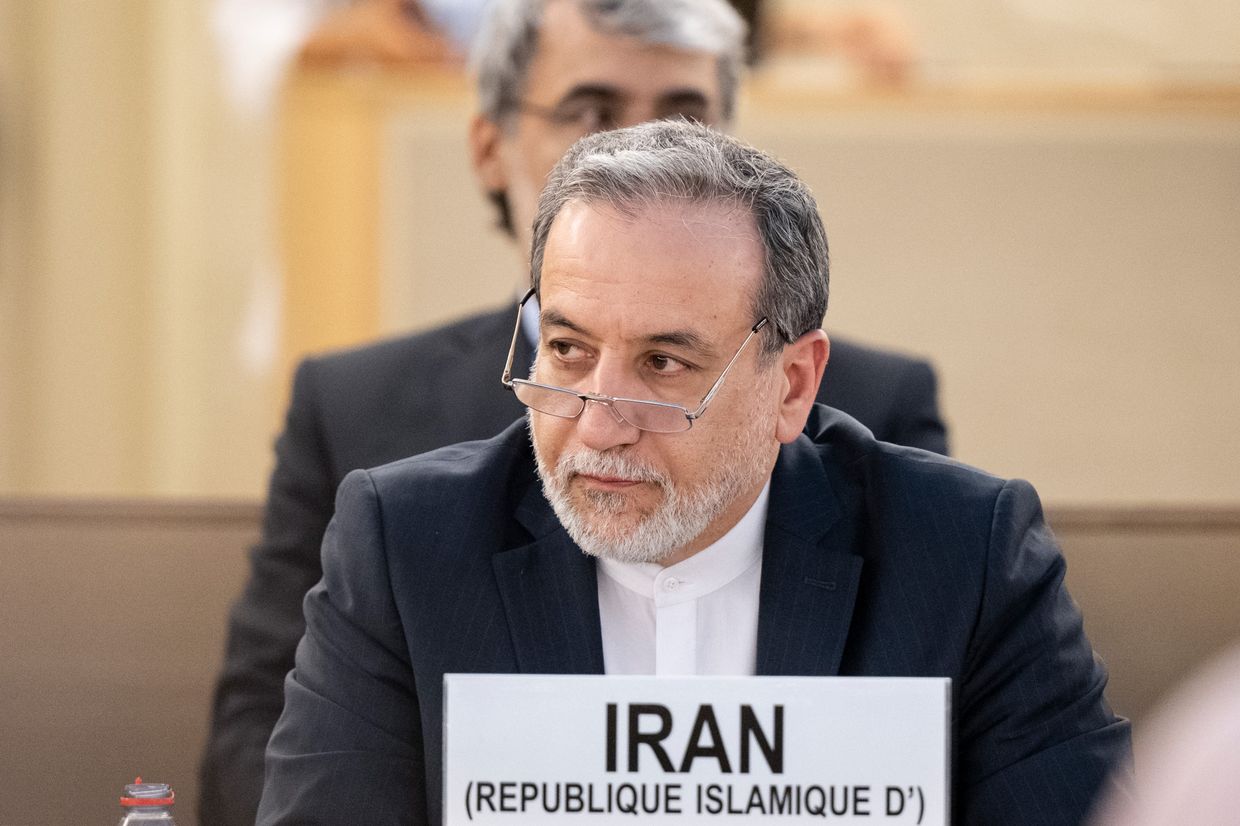
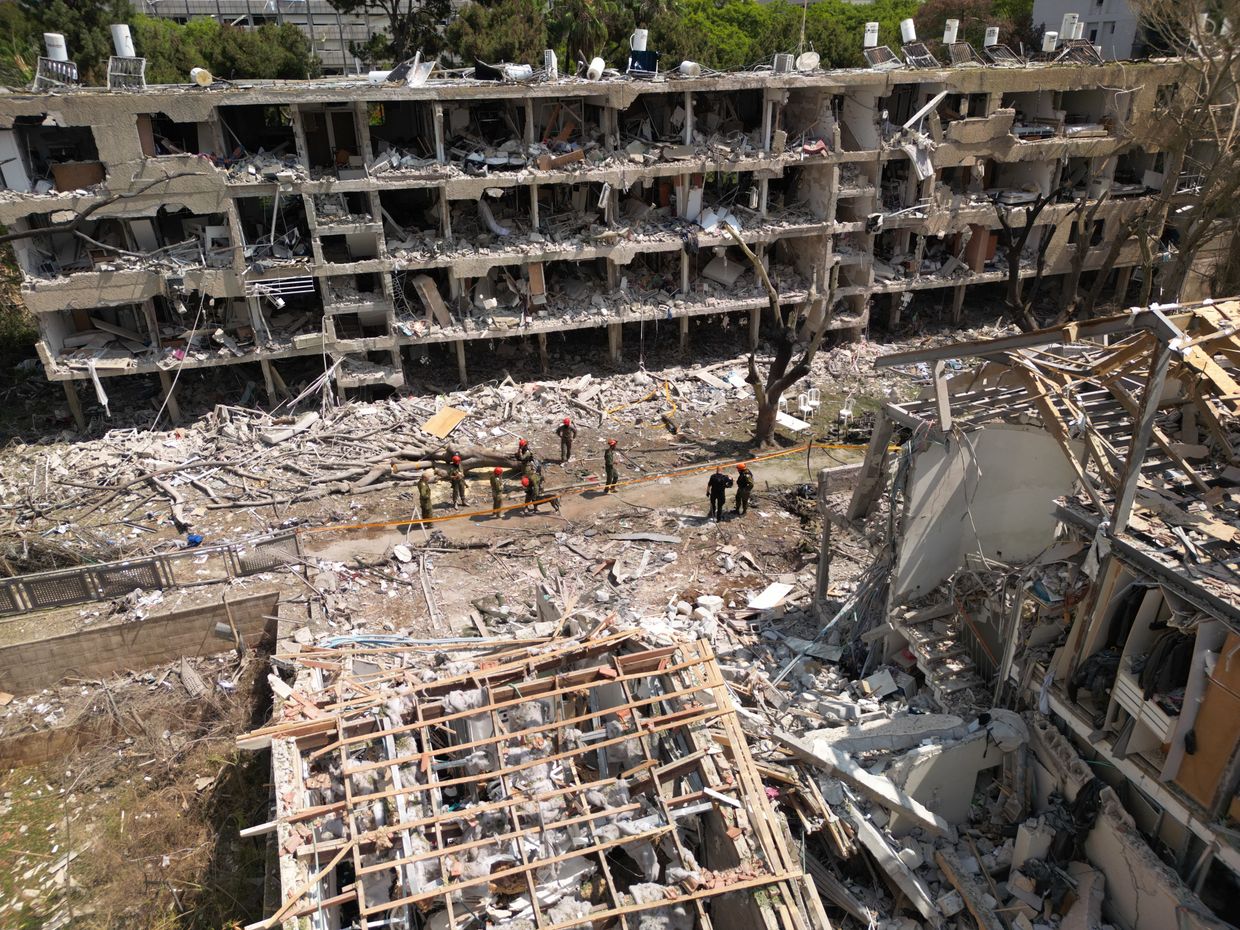

Ukraine's diplomatic corps and military intelligence (HUR) evacuated 176 Ukrainian and foreign citizens from Israel to Egypt ahead of U.S. attacks on Iran, President Volodymyr Zelensky announced on June 22.
"Evacuation efforts are also ongoing from Iran to Azerbaijan," Zelensky said on X after the U.S. launched air strikes against three Iranian nuclear facilities, joining Israel's campaign against Iran's nuclear program.
The foreign nationals evacuated by Ukraine included citizens of the U.S., Moldova, Latvia, Azerbaijan, and Estonia.
"We are responding to every request and will continue evacuation efforts," Zelensky added.
The latest chapter of hostilities between Iran and Israel began with Israeli air strikes against the Iranian nuclear program and military leaders on June 13. Israel has accused Iran of developing a nuclear weapon, a claim that Tehran denied.
U.S. President Donald Trump reportedly hopes that the U.S. attacks will push the Iranian leadership to the negotiating table, as the conflict was preceded by Trump's efforts to find a diplomatic solution to Tehran's nuclear aspirations.
Ukraine's Foreign Ministry announced already on June 18 that evacuations of Ukrainian citizens from Iran and Israel are being prepared.
According to the Iranian Health Ministry, over 400 Iranians have been killed and over 3,000 wounded in Israeli attacks. In turn, at least 29 Israeli citizens have been killed and 900 injured in Iranian attacks.
 The Kyiv IndependentKollen Post
The Kyiv IndependentKollen Post
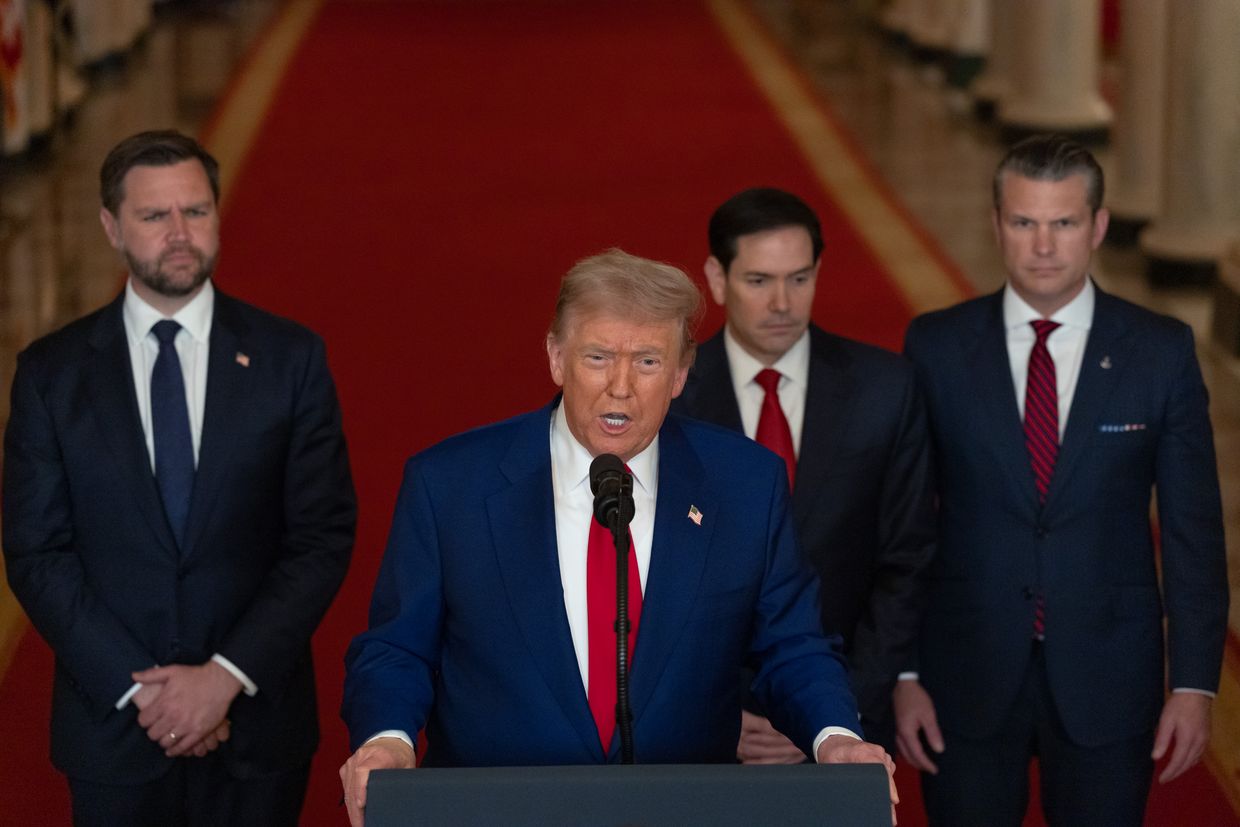

Moscow condemned on June 22 the recent U.S. strikes against Iranian nuclear facilities, calling them a violation of international law and Iran's sovereignty, a statement in stark contrast to Russia's full-scale war against Ukraine.
U.S. President Donald Trump announced on June 21 that the U.S. air strikes targeted three nuclear sites in Iran, Fordow, Natanz, and Esfahan, joining Israel's campaign against Iran's nuclear program amid the escalating conflict in the Middle East.
"The irresponsible decision to subject the territory of a sovereign state to missile and bomb strikes, no matter what arguments are used, is grossly violating international law, the U.N. Charter, and the resolutions of the U.N. Security Council," the Russian Foreign Ministry said in a statement.
The ministry also warned of possible radiological consequences, despite Moscow's own record of repeatedly placing nuclear facilities at risk during its full-scale invasion of Ukraine and threatening to use nuclear weapons.
Russia and Iran are close strategic partners, with Tehran providing Moscow with ballistic missiles and thousands of Shahed attack drones for its war against Ukraine.
Moscow has diplomatically backed Iran after Israel launched the initial air strikes against Iranian military and nuclear targets on June 13, an operation that sparked further waves of aerial attacks from both sides.
In its statement, the Russian Foreign Ministry urged a response from the U.N. Security Council, saying that "the confrontational actions of the U.S. and Israel must be collectively rejected."
"Of particular concern is the damage caused by the attacks on Iranian nuclear facilities to the global non-proliferation regime based on the Treaty on the Non-Proliferation of Nuclear Weapons (NPT)."
Israel has increasingly warned that Iran is developing a nuclear weapon, an assertion backed by Trump despite U.S. intelligence previously disputing the claim. Tehran has rejected having a nuclear weapons program.
Though Trump announced a complete "obliteration" of Iran's nuclear enrichment facilities in the recent attacks, the scale of damage is not immediately clear. The International Atomic Energy Agency (IAEA) said it had detected no increase in radiation at the targeted sites, while the Iranian state media and officials sought to downplay the damage.
Iran has called for an emergency meeting of the U.N. Security Council in the wake of the attacks. Both the U.S. and Russia hold a permanent seat and a veto power in the council.
Israeli Prime Minister Benjamin Netanyahu praised Trump for the operation, saying, "First comes strength, then comes peace. And tonight, (President Donald) Trump and the United States acted with a lot of strength.
In turn, Iran's Foreign Minister Abbas Araghchi said that the U.S. "has committed a grave violation of the U.N. Charter, international law and the NPT by attacking Iran's peaceful nuclear installations."
Washington's European partners have issued cautious responses to the U.S. attacks, calling for a diplomatic resolution while affirming that Iran's nuclear program is a danger to international security.
"Iran must not be allowed to develop a nuclear weapon, as it would be a threat to international security," top EU diplomat Kaja Kallas said on X.
"I urge all sides to step back, return to the negotiating table, and prevent further escalation."
 The Kyiv IndependentKollen Post
The Kyiv IndependentKollen Post
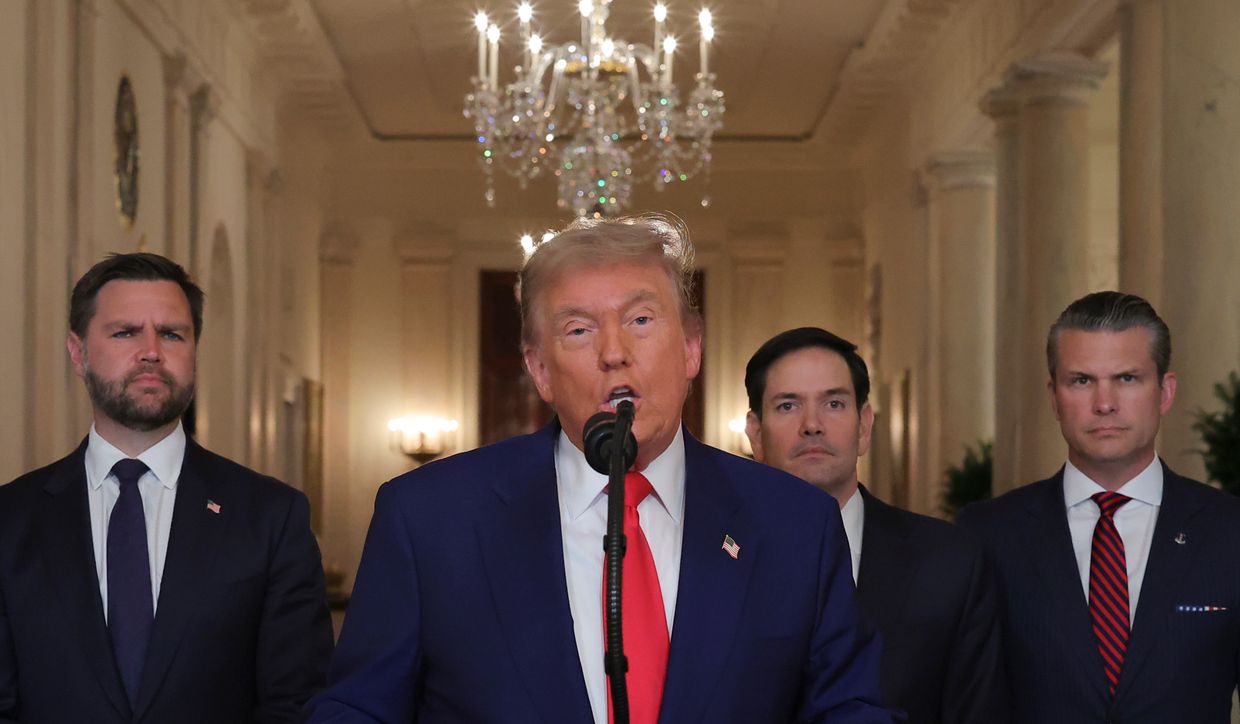

The United States conducted air strikes on nuclear sites in Iran, U.S. President Donald Trump said on June 21, calling the attacks a "spectacular success."
"We have completed our very successful attack on the three nuclear sites in Iran, including Fordow, Natanz, and Esfahan. All planes are now outside of Iran air airspace," Trump said.
Iran's Foreign Minister Abbas Araghchi condemned the U.S. attacks and warned they will have "everlasting consequences," with Tehran requesting an emergency U.N. Security Council meeting.
Israel and Iran have exchanged strikes in recent days as Israel voices concern over Tehran's continued development of nuclear weapons.
The White House has backed Israel, remaining cautious in escalating its role in the conflict. The strikes mark U.S. military involvement in the conflict.
"A full payload of bombs was dropped on the primary site, Fordow. All planes are safely on their way home. Congratulations to our great American Warriors," Trump said.
The U.S. president shared a separate post with a screenshot that said, "Fordow is gone."
The International Atomic Energy Agency (IAEA) said it had detected no increase in radiation at the targeted sites, while the Iranian state media and officials sought to downplay the damage.
"Iran must now agree to end this war," Trump then said in another post on social media.
Trump later held a live address where he reiterated calls for Iran to join negotiations as the U.S. and Israel demand that Iran abandon its nuclear program.
"This cannot continue. There will be either peace or there will be tragedy for Iran, far greater than we have witnessed over the last eight days. Remember, there are many targets left," Trump said.
Trump has called for Tehran to negotiate an end to the conflict as Israel and Iran exchange strikes.
The U.S. president hopes that the strikes will push Iran to the negotiating table, sources familiar with the matter told CNN, adding that the U.S. is not planning additional military actions in Iran.
Democratic Senate Minority Leader Chuck Schumer has condemned Trump's decision to conduct air strikes without congressional approval.
"President Trump must provide the American people and Congress clear answers on the actions taken tonight and their implications for the safety of Americans," Schumer said.
Israel asked the U.S. to join military operations targeting Iran’s nuclear program, including a strike on the fortified Fordow uranium enrichment site, Axios reported on June 14, citing two Israeli officials.
Trump suggested in a conversation with Israeli Prime Minister Benjamin Netanyahu that he would consider joining the operation if needed, an Israeli official told Axios.
A White House official denied that claim on June 13. Another U.S. official confirmed that Israel had urged the U.S. to take part, but said Washington is not currently considering involvement.
Israeli Ambassador to the U.S. Yechiel Leiter told Fox News on June 13 that "the entire operation… really has to be completed with the elimination of Fordow."
Russia and Iran have cooperated to develop their own nuclear programs as both countries face Western sanctions.
Russia supplied Iran with the Middle East's first nuclear power plant despite objections from the West.
Iran has assisted Russia in its war against Ukraine, providing drones and missiles. Tehran has helped Moscow develop weapons of its own. Russia's Geran drone is modelled after the Iranian Shahed drone.
 The Kyiv IndependentKollen Post
The Kyiv IndependentKollen Post
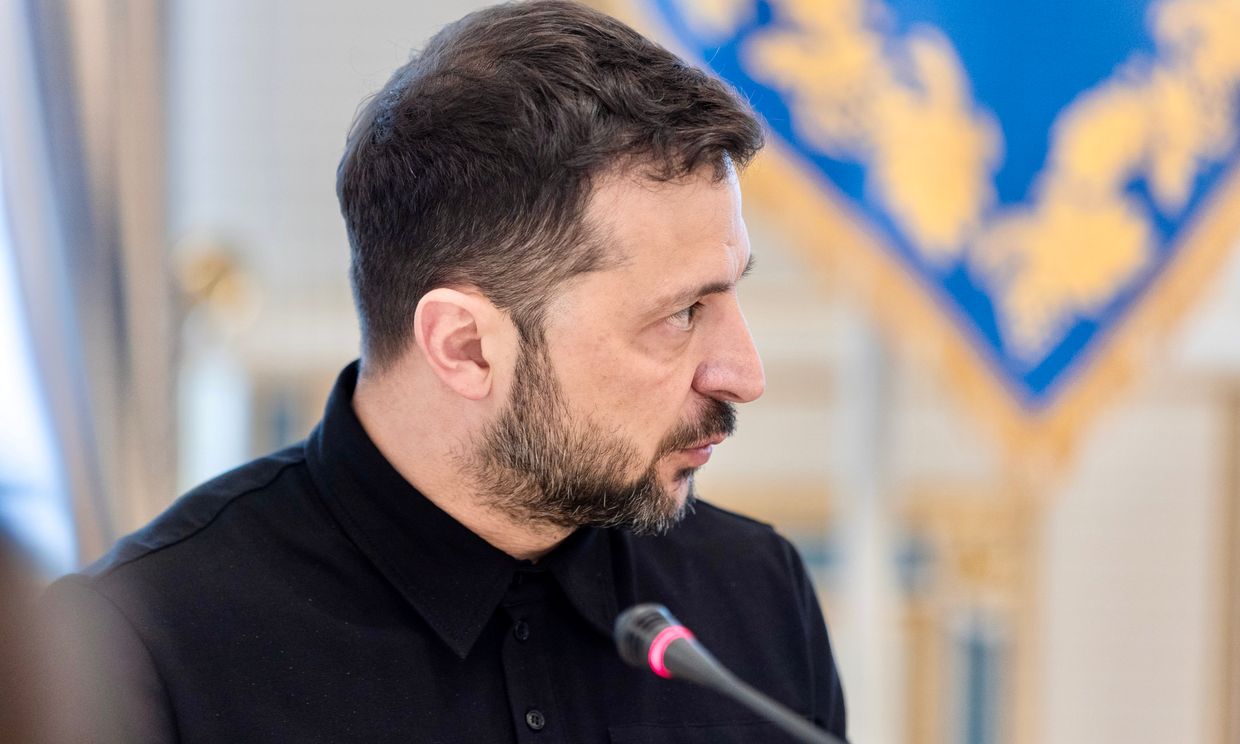

President Volodymyr Zelensky on June 20 called on U.S. President Donald Trump to "make the right choice for history" by standing with Ukraine against Russian aggression.
Zelensky said Moscow is attempting to influence the U.S. president amid the escalating conflict between Israel and Iran.
"(Russian President Vladimir) Putin really wants us to be without America," Zelensky said during a briefing attended by the Kyiv Independent. "For President Trump right now, the Israel-Iran issue is definitely a higher priority."
The Ukrainian president cautioned that Moscow lacks the capability to meaningfully support Iran but will "pretend" otherwise to gain influence with Washington.
"I think this is also a sign to President Trump. And I really don't want him (Trump) to make a deal with the Russians that is not in our favor," he said.
Zelensky said that U.S. support remains essential for Ukraine's defense and long-term security. While some European countries have committed to backing Ukraine, he said, the loss of American support would be the most difficult scenario.
"So that President Trump makes the right choice for history," Zelensky said. "Because it's the right thing to be with us. Because Putin is the aggressor. And in any case, the aggressor loses."
He added that the Ukrainian delegation is actively working with U.S. officials, including a recent conversation between Economy Minister Yulia Svyrydenko and U.S. Treasury Secretary Scott Bessent regarding the minerals agreement and securing new military assistance.
"We handed over a specific weapons package we need, including Patriot systems, and we are awaiting feedback," Zelensky added. "We are ready to find the money for this entire package."
The president said these items — military aid, sanctions, and coordinated diplomatic pressure on the Kremlin — would be key topics in a potential meeting with Trump.
"We need greater certainty and greater pressure from the world on Putin — this is necessary for diplomacy," he said. "And I would like to discuss these formats with him."
Putin offered to mediate between Israel and Iran after speaking with both Israeli Prime Minister Benjamin Netanyahu and Iranian President Masoud Pezeshkian on June 13.
Russia condemned Israel's strikes, which targeted Iran's nuclear and military infrastructure using 200 aircraft and 330 munitions. Iran retaliated with missile strikes on Tel Aviv and other cities, killing five Ukrainian citizens on June 14.
Zelensky traveled to the G7 Leaders' Summit in Canada on June 17, hoping for a one-on-one meeting with Trump. The U.S. president left the summit early, citing the escalating Israel-Iran crisis.
Despite rejecting Putin's offer to mediate in the Middle East conflict, Trump has not imposed any new sanctions on Russia, even as the Kremlin continues to reject ceasefire proposals in its war against Ukraine.
 The Kyiv IndependentTim Zadorozhnyy
The Kyiv IndependentTim Zadorozhnyy
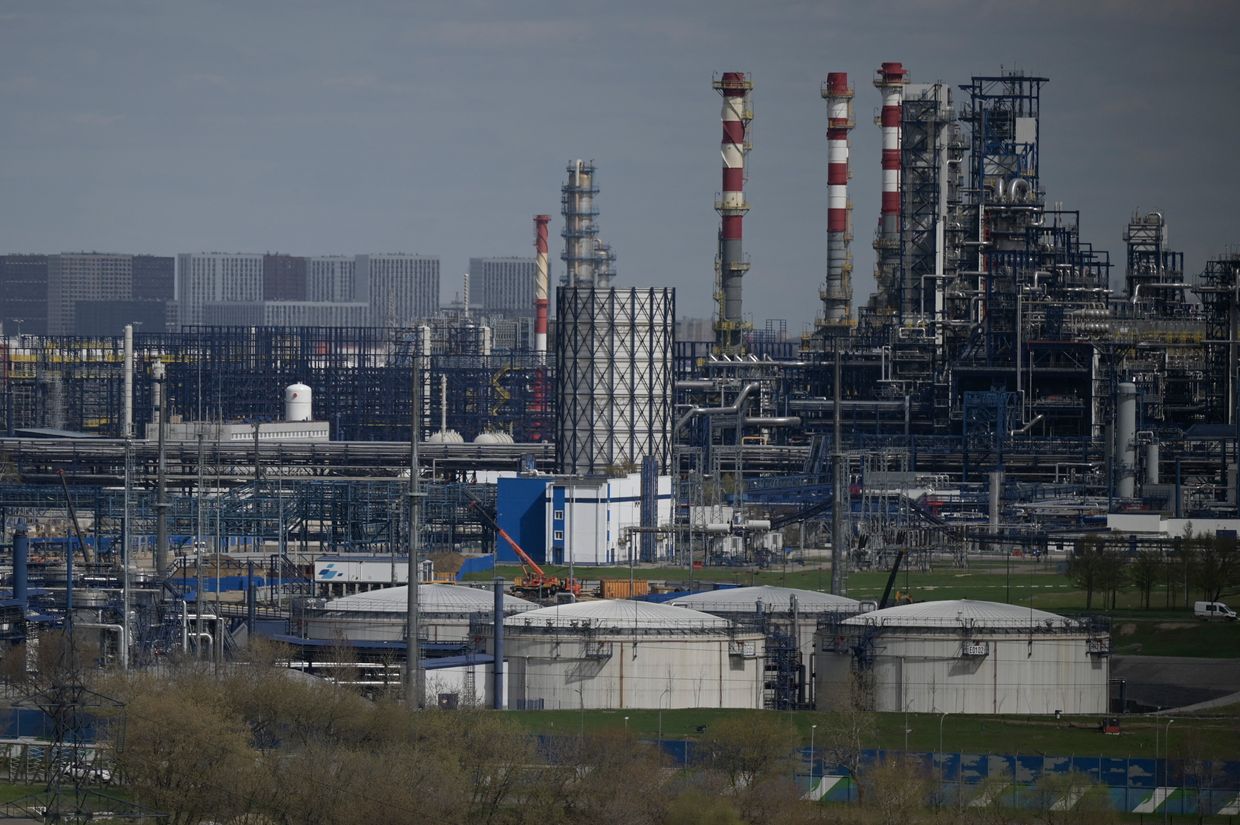

The European Union has postponed a move to lower the existing price cap on Russian oil, after concerns that the Iran-Israel conflict could lead to higher prices, Politico reported on June 20, citing unnamed diplomatic sources.
The price cap, introduced in December 2022 as a measure to limit the Kremlin's ability to finance its war against Ukraine, prohibits Western companies from shipping, insuring, or otherwise servicing Russian oil sold above $60 per barrel.
Ukraine has been calling on Western partners to lower the price cap on Russian oil from $60 to $30 per barrel. Meanwhile, two diplomats told Politico that the escalation of the conflict between Iran and Israel would make it impossible to impose new restrictions.
"The idea of lowering the price cap is probably not going to fly because of the international situation in the Middle East and the volatility," said one diplomat on the condition of anonymity.
The issue of reducing the price cap on Russian oil was discussed during the Group of Seven (G7) summit, which was held June 15-17 in Canada. However, the participants failed to reach a consensus.
"At the G7 meeting this week, it was agreed by all the countries they would prefer not to take the decision right now," the diplomat added. "The prices were quite close to the cap; but now the prices are going up and down, the situation is too volatile for the moment."
European Commission President Ursula von der Leyen said during the G7 summit that the existing measures on Russian oil exports "had little effect," while noting that oil prices had risen in recent days, so "the cap in place does serve its function. "
Global oil prices spiked on June 13, after Israeli strikes on Iran triggered a long-range war between the two countries that has continued for over a week.
Brent and Nymex crude prices surged more than 10% before stabilizing around 7.5% higher, with Brent at $74.50 a barrel and Nymex at $73.20 as of June 20, the BBC reported.
The spike threatens to undermine Western efforts to restrict the wartime revenue of the Russian state, which depend heavily on oil exports.
EU High Representative Kaja Kallas previously urged the European Union to pursue lowering the oil price cap on Russian oil, even without U.S. support, warning that Middle East tensions could otherwise drive prices up and boost Russia's revenues.
 The Kyiv IndependentAlex Cadier
The Kyiv IndependentAlex Cadier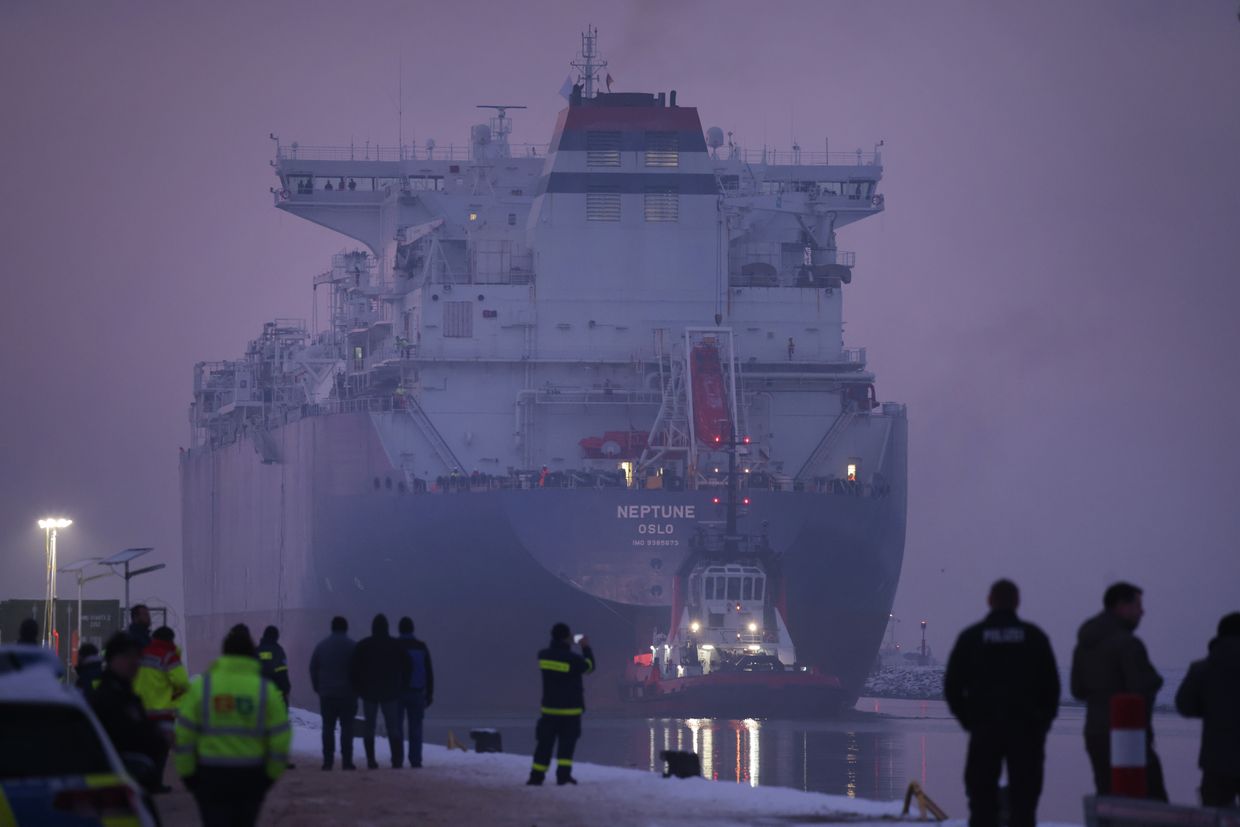
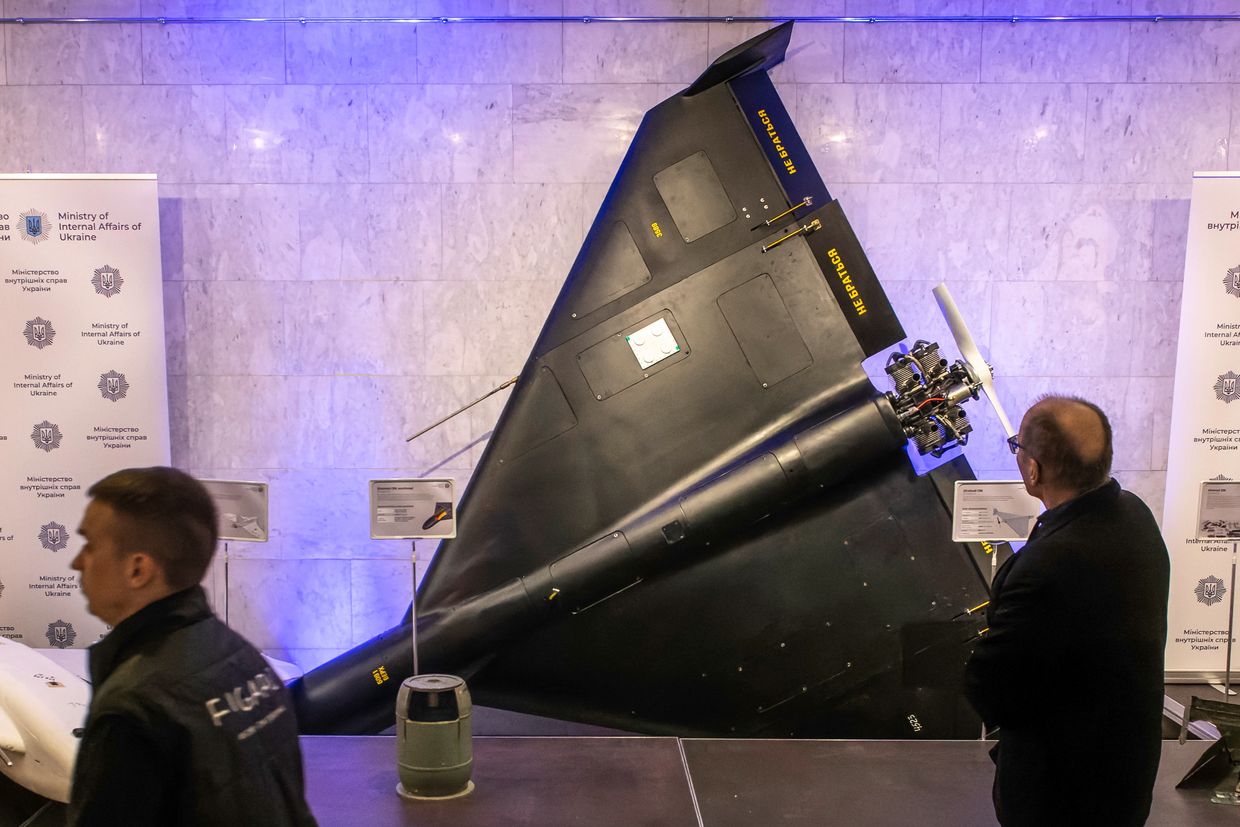

Russian drone attacks against Ukraine might decrease due to Iranian Shahed production capabilities being targeted in Israeli strikes, Estonian military intelligence commander Ants Kiviselg said on June 20, according to the ERR broadcaster.
The comments come as Russian drone strikes across Ukraine have been breaking records in recent weeks, with nearly 500 drones and missiles launched overnight on June 9.
"While it can be assessed that Russia has been able to largely localize and transfer the production of Shahed and Geran-type drones to Russia, it can be assumed that some critical nodes for drone production continue to come from Iran," Kiviselg said.
Israel initiated a series of air strikes against Iranian military and nuclear facilities on June 13, with Tehran responding with waves of drone and missile attacks, further escalating tensions in the Middle East.
Iran has been a key ally to Moscow and provided the country with ballistic missiles and thousands of Shahed "kamikaze" drones for its war against Ukraine. Russia has also launched production of its own Shahed equivalents called Geran.
While Israeli strikes targeted and destroyed a Geran-type drone factory in Isfahan, Ukrainian forces have been attacking the Russian plant in Alabuga in Tatarstan, the Estonian intelligence chief noted.
"So there is a possibility that in the near future we may see a certain decline in the use of drones," Kiviselg said. Estonian intelligence is nevertheless convinced that Moscow is planning steps to not only maintain, but also "increase" its drone production.
Russia has been regularly deploying Shahed-type drones for nighttime attacks on Ukrainian cities and infrastructure, overwhelming Ukrainian air defenses with massive swarms.
Ukraine's intelligence has warned that the Russian defense industry seeks to ramp up the production of the strike drones, aiming to deliver 500 unmanned aircraft per month for Russia's war effort.
In turn, the Ukrainian side has also increasingly invested in its drone capabilities, and more than doubled its production of long-range drones in 2024 compared to the previous year.
 The Kyiv IndependentChris York
The Kyiv IndependentChris York


Regime change in Iran is "unacceptable" and the assassination of Supreme Leader Ayatollah Ali Khamenei would "open Pandora's box," Kremlin spokesperson Dmitry Peskov told Sky News in an interview published June 20.
Russia, which signed a strategic partnership with Iran in January, has reportedly grown increasingly alarmed as the United States weighs deeper involvement in Israel's military campaign against Tehran.
Earlier, U.S. President Donald Trump suggested the option of assassinating Iran's Supreme Leader Khamenei remains on the table, though he said the U.S. does not plan to act on it "for now."
The comment followed reporting that Israel had earlier proposed a plan to kill Khamenei — a proposal Trump initially rejected, according to a U.S. official cited by AP.
Peskov warned that any attempt at regime change in Tehran or threats to its leadership would "open Pandora's box," deepening instability across the Middle East and beyond.
"(Regime change in Iran) is unimaginable," Peskov said. "It should be unacceptable, even talking about that should be unacceptable for everyone." He added that the killing of Khamenei would promote extremist sentiment inside Iran and provoke unpredictable consequences.
"The situation is extremely tense and is dangerous not only for the region but globally," Peskov said. "An enlargement of the composition of the participants of the conflict is potentially even more dangerous. It will lead only to another circle of confrontation and escalation of tension in the region."
Russia has been a close regional ally of Iran, while Tehran supplied drones and ballistic missiles for Moscow's war against Ukraine. Meanwhile, Israel has maintained a delicate balance, refraining from joining Western sanctions against Moscow while condemning Iran's role in supporting Russia's war effort.
Asked on whether Moscow would respond to a possible strike against Khamenei, Peskov declined to specify, saying any reaction would come from "inside Iran."
Peskov also commented on Trump's dismissive response to Russian President Vladimir Putin's offer to mediate between Israel and Iran. The U.S. president reportedly told Putin to "mediate your own conflict" in reference to the Russia-Ukraine war. Peskov shrugged off the remark, calling Trump's language "unique" and urging mutual tolerance.
Tensions have risen between the U.S. and Iran following a wave of Israeli air strikes on Iranian territory, beginning June 13. The attacks targeted nuclear infrastructure and senior Iranian commanders, prompting Iranian missile strikes on Tel Aviv and other Israeli cities.
Tehran claimed that at least 224 Iranian civilians were killed on June 16, though the figures remain unverified.
Russia has offered to mediate the crisis, with Putin reportedly reaching out to both Iranian President Masoud Pezeshkian and Israeli Prime Minister Benjamin Netanyahu. Tel Aviv, according to the Kremlin, is reluctant to accept the proposal, while the EU leaders rejected it, citing Russia's aggression in Ukraine and its close military ties to Iran.
 The Kyiv IndependentYuliia Taradiuk
The Kyiv IndependentYuliia Taradiuk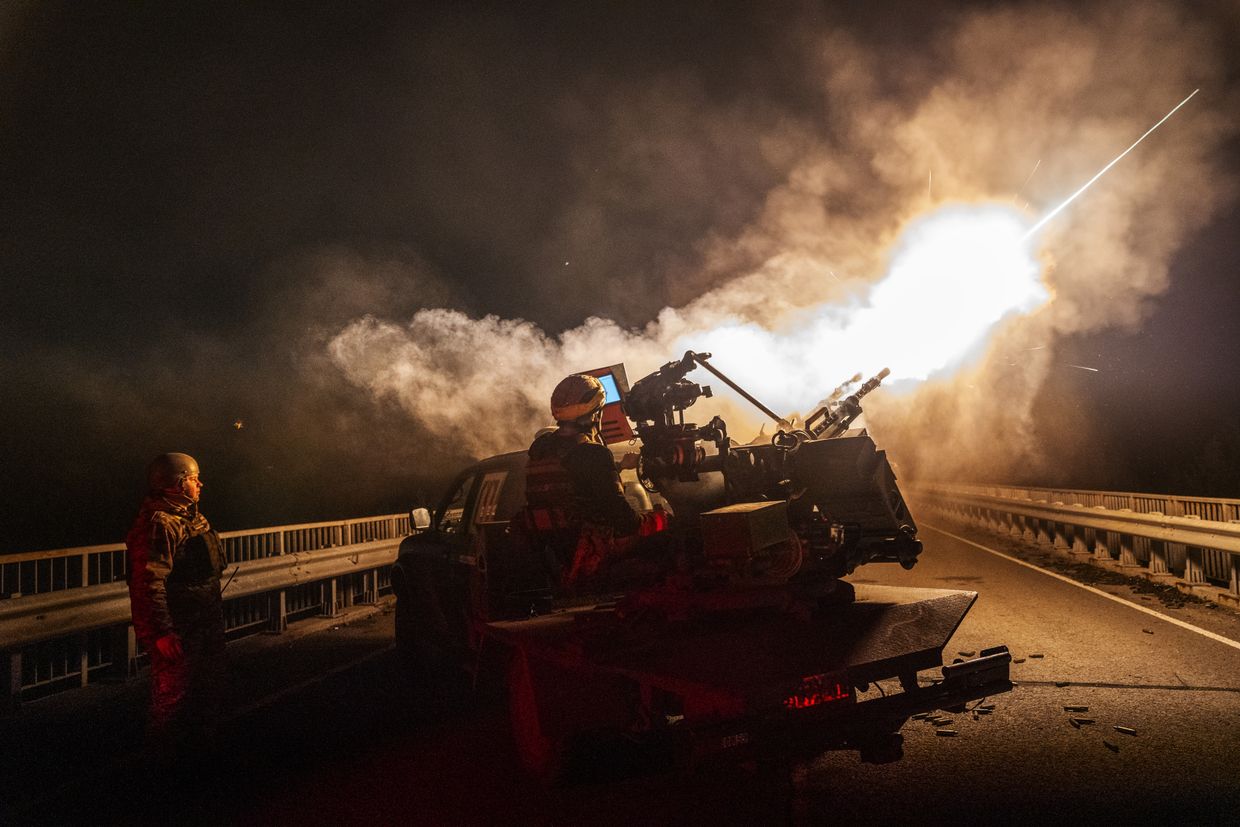
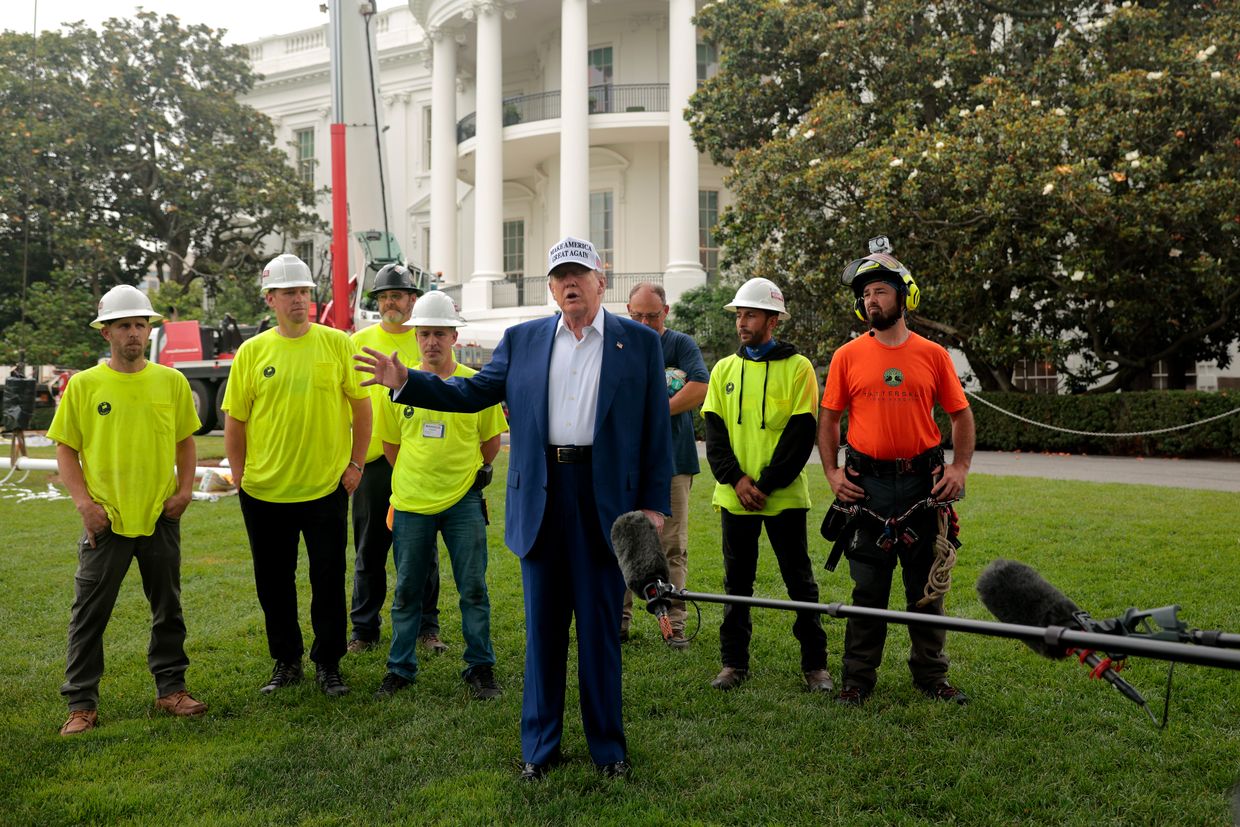

Editor's note: This item has been updated to include Kremlin spokesperson Dmitry Peskov's statement.
U.S. President Donald Trump said on June 18 that he had turned down Russian President Vladimir Putin's offer to mediate the escalating conflict between Israel and Iran.
"I spoke to him yesterday, and, you know, he actually offered to help mediate. I said, do me a favor. Mediate your own," Trump told reporters. "Let's mediate Russia first, okay? I said, Vladimir, let's mediate Russia first. You can worry about this later."
Shortly after Trump's statement, Kremlin spokesperson Dmitry Peskov said the U.S. president was speaking "figuratively" when referring to a conversation with Putin, according to the Russian state news agency TASS.
"Life is so eventful these days that a retrospective covering several days is like looking back at yesterday," Peskov added, implying there had been no such conversation on June 17.
Trump's comments come just days after he had said he was "open" to the idea of Putin serving as a mediator between Israel and Iran, sparking criticism from U.S. allies. On June 15, Trump claimed Putin was "ready" and had discussed the possibility at length in a recent phone call.
Putin, whose country has been deepening military cooperation with Tehran, spoke separately with Israeli Prime Minister Benjamin Netanyahu and Iranian President Masoud Pezeshkian on June 13. He condemned Israel's air strikes on Iran and offered Russian mediation.
Those strikes, described by Israel as "preemptive," involved 200 warplanes and 330 munitions targeting Iranian nuclear and military sites. Iran responded with missile attacks on Israeli cities, including Tel Aviv, that killed at least five Ukrainian citizens on June 14.
Putin's offer of mediation has been dismissed by several Western leaders.
Trump says Putin offered to mediate in the war between Israel and Iran.
— Brian Lilley (@brianlilley) June 18, 2025
Trump: "Do me a favor. Mediate your own. Let's mediate Russia first. I said, Vladimir, let's mediate Russia first. You can worry about this later.”
pic.twitter.com/2JOL6noPX3
French President Emmanuel Macron said Russia "cannot be a mediator," given its war against Ukraine. EU foreign policy chief Kaja Kallas echoed that sentiment, saying on June 17 that Putin "cannot be trusted to mediate peace" while continuing to wage war on Ukrainian civilians.
Kremlin spokesperson Dmitry Peskov said on June 17 that Israel appeared unwilling to accept Moscow's mediation. Israel has not publicly commented on the offer.
Ukraine, which has been targeted by thousands of Iranian-made Shahed drones and missiles supplied to Russia, warned that Tehran is a "source of problems" both regionally and globally.
Despite Trump's latest rebuke of Putin's mediation ambitions, the U.S. president has continued to avoid placing additional sanctions on Moscow, even as the Kremlin refuses to agree to a ceasefire in its war against Ukraine.
 The Kyiv IndependentAnna Fratsyvir
The Kyiv IndependentAnna Fratsyvir
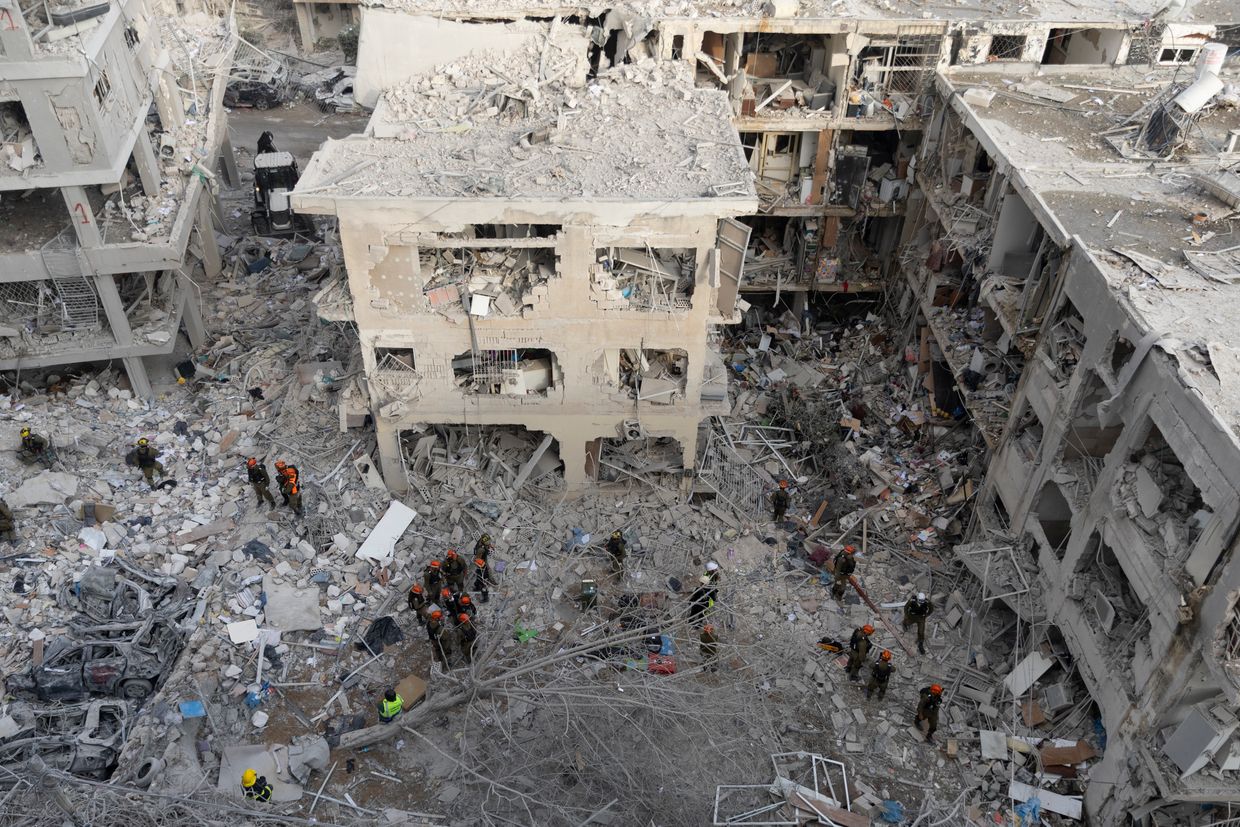

Ukraine is preparing to evacuate its citizens from Israel and Iran as hostilities between the two countries intensify, the Foreign Ministry told Ukrainian media outlet NV on June 18.
The move comes as Israel on June 13 launched widespread air strikes against Iran, targeting nuclear facilities and the country's military leadership. Iran responded with missile strikes on Tel Aviv and other cities, killing multiple civilians, including five Ukrainian citizens on June 14.
As of the morning of June 18, 293 Ukrainians in Israel and 85 in Iran have requested evacuation, the ministry said. Ten additional foreign nationals with permanent residency in Ukraine have also asked for assistance to evacuate from Iran.
Ukraine's embassy in Israel has received over 400 calls on its hotline as citizens seek updates on possible evacuation routes. The ministry told NV it is developing evacuation plans, including potential flights organized in cooperation with international partners.
On June 13, Kyiv expressed concern over the security situation in the Middle East, describing Tehran as a "source of problems" in the region and beyond.
Iran is a key supplier of weapons to Russia, including Shahed-type drones and ballistic missiles used in attacks on Ukrainian cities. Israel, which hosts a significant Russian-speaking population, has not joined Western sanctions against Moscow.
Tensions in the region grow as U.S. President Donald Trump is also considering launching U.S. strikes on Iranian nuclear targets, Axios reported on June 17.
On Truth Social, Trump demanded Iran's "unconditional surrender" and threatened Supreme Leader Ali Khamenei, while boasting about American control of Iranian airspace.
Trump has also floated Russian President Vladimir Putin as a possible mediator in the conflict.
Putin held separate calls with Iranian President Masoud Pezeshkian and Israeli Prime Minister Benjamin Netanyahu on June 13, condemning Israeli strikes and offering to mediate.
Israel has not publicly responded to Russia's proposal, but Kremlin spokesperson Dmitry Peskov said on June 17 that Tel Aviv appeared unwilling to accept Russian mediation.
Iran's Health Ministry claimed on June 18 that 585 people had been killed by Israeli strikes, with Tehran alleging that 90% of the casualties are civilians.
The figures have not been independently verified.
 The Kyiv IndependentAnna Fratsyvir
The Kyiv IndependentAnna Fratsyvir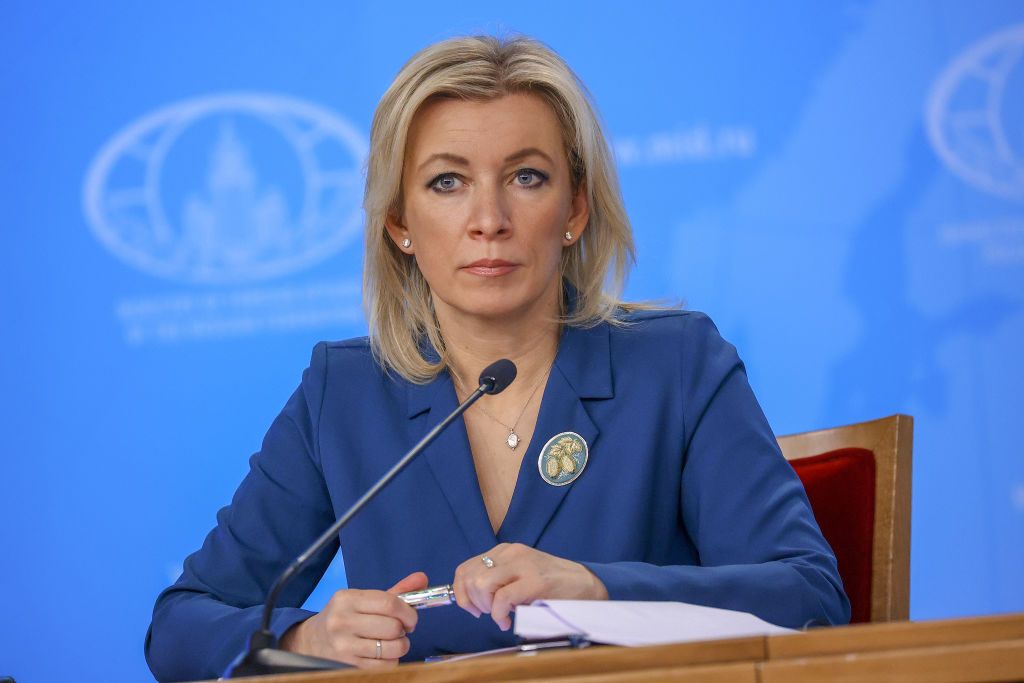


Russia on June 18 warned the world is "millimetres away from catastrophe" due to Israeli strikes on Iran's nuclear infrastructure, just four months after one of its own drones struck the Chornobyl nuclear site in Ukraine.
Russian Foreign Ministry spokesperson Maria Zakharova accused Israel of escalating the risk of a nuclear incident in the Middle East, despite Russia's own record of repeatedly placing nuclear facilities at risk during its full-scale invasion, and threatening the use of nuclear weapons.
On Feb. 14, Russian forces struck the Chornobyl nuclear facility with a Shahed drone, hitting the protective sarcophagus that encases Reactor No. 4, site of the 1986 nuclear disaster.
Damage was limited, and no radiation leakage occurred, but the act was widely condemned as a deliberate provocation timed to coincide with the Munich Security Conference.
President Volodymyr Zelensky called the attack on the Chornobyl plant "a terrorist threat to the whole world." Ukrainian officials and nuclear security experts said the strike was unlikely to cause significant radioactive contamination but served as a warning of Russia's willingness to weaponize fear of nuclear disaster.
Russia has also intensified strikes near other nuclear facilities in Ukraine, including infrastructure connected to the occupied Zaporizhzhia Nuclear Power Plant, which Moscow's forces have used as a military base since early in the war.
Analysts view the attacks as part of a broader campaign of intimidation aimed at pressuring Kyiv and its allies into a settlement.
Zakharova's comments follow growing international concern over the rising tensions between Israel and Iran. Russia has positioned itself as a potential mediator in the conflict, though European leaders have dismissed the Kremlin's neutrality due to its deepening military ties with Tehran and ongoing aggression in Ukraine.
Russian President Vladimir Putin "cannot be trusted" to mediate peace in the Middle East while launching mass strikes on Ukrainian cities, EU foreign policy chief Kaja Kallas said on June 17. Her remarks came after a Russian missile attack killed at least 28 civilians in Kyiv and injured over 130.
Kremlin spokesperson Dmitry Peskov said Israel has so far rejected Moscow's mediation offer. U.S. President Donald Trump said over the weekend that Putin had expressed willingness to help mediate.
Russia continues to receive military support from Iran, including drones and missiles used in attacks across Ukraine.
 The Kyiv IndependentYuliia Taradiuk
The Kyiv IndependentYuliia Taradiuk
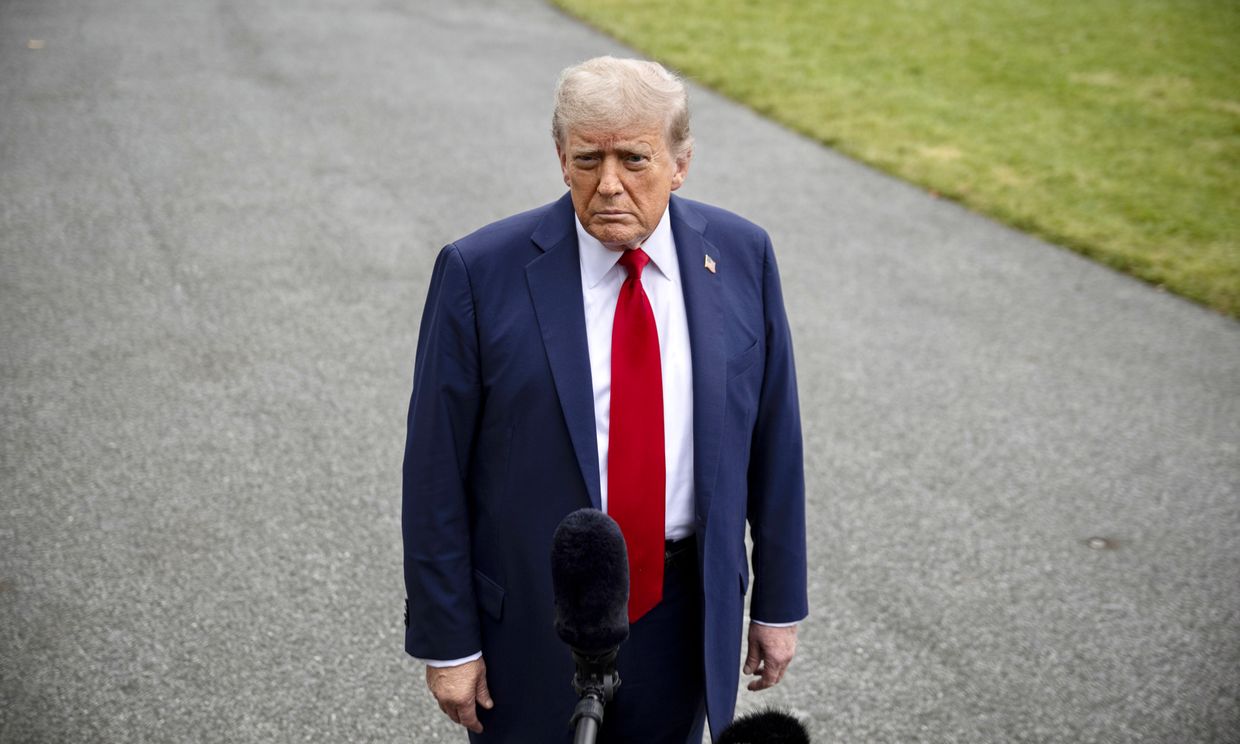

U.S. President Donald Trump is weighing direct military action against Iran, including potential strikes on its nuclear facilities, Axios reported on June 17, citing unnamed U.S. officials.
Trump demanded Iran's "unconditional surrender" on Truth Social on June 17 and threatened Supreme Leader Ayatollah Ali Khamenei, boasting about U.S. air superiority.
The U.S. president is expected to meet with his national security team later in the day to determine the scope of involvement in the escalating conflict between Israel and Iran, according to Axios.
The meeting comes after his early departure from the G7 Leaders' Summit on June 16, where he had been scheduled to meet with President Volodymyr Zelensky the following day.
"We now have complete and total control of the skies over Iran," Trump wrote on Truth Social.
He added that "we know exactly where the so-called 'Supreme Leader' is hiding."
"He is an easy target, but is safe there - We are not going to take him out (kill!), at least not for now," Trump continued. "But we don't want missiles shot at civilians, or American soldiers. Our patience is wearing thin."
The U.S. president is increasingly leaning toward using military force to target Iran's nuclear facilities, moving away from a diplomatic resolution, CNN reported, citing two unnamed U.S. officials.
Although Trump continues to be receptive to negotiations, CNN sources indicated that any agreement would require significant concessions from Tehran.
German Chancellor Friedrich Merz said on June 17 that U.S. involvement in Israel's military campaign is under serious consideration, and a decision could be "made in the near future," Politico reported.
Merz said the decision depends on whether the Iranian regime "is prepared to return" to the negotiating table.
Israel launched a series of massive air strikes on Iran starting June 13, targeting nuclear facilities and senior military figures. The Israeli government claimed Tehran was nearing nuclear weapons capability.
Iran responded with missile strikes on Tel Aviv and other Israeli cities, which resulted in civilian casualties, including five Ukrainian citizens on June 14.
Iranian officials claimed 224 people have been killed in Israeli attacks so far, most of them civilians. The figures have not been independently verified.
As tensions grow, Trump has floated the idea of Russian President Vladimir Putin serving as a mediator between Israel and Iran. Putin spoke with both Iranian President Masoud Pezeshkian and Israeli Prime Minister Benjamin Netanyahu on June 13, offering mediation and condemning Israeli strikes.
Israel has not publicly responded to Russia's proposal, but Kremlin spokesperson Dmitry Peskov said on June 17 that Tel Aviv appeared unwilling to accept Russian mediation.
French President Emmanuel Macron dismissed the suggestion entirely, saying on June 15 that Moscow, given its war in Ukraine and disregard for the UN Charter, "cannot be a mediator."
Tehran has become one of Russia's closest military partners during its war against Ukraine, supplying thousands of Shahed drones and ballistic missiles used in daily strikes on Ukrainian cities.
Israel, which has historically maintained careful relations with Russia and is home to a substantial Russian-speaking population, has not joined in Western sanctions against Moscow.
On June 13, Kyiv expressed its support for Israel, describing Iran as a "source of instability in the region and beyond," citing Tehran's extensive military cooperation with Russia.
 The Kyiv IndependentDmytro Basmat
The Kyiv IndependentDmytro Basmat


Israel is reluctant to accept Russia's mediation in its war with Iran, Kremlin spokesperson Dmitry Peskov said on June 17, according to the Russian state news agency TASS.
"At the moment, we see reluctance — at least on Israel’s part — to resort to mediation or pursue a peaceful resolution," Peskov claimed.
Since June 13, Israel has repeatedly carried out massive air strikes against Iran, particularly the country's military leadership and nuclear facilities. The Israeli government justified the attacks by saying that Tehran was on the verge of creating a nuclear bomb.
Iran responded by attacking Israeli cities, including Tel Aviv, which resulted in civilian casualties, including five Ukrainian citizens on June 14.
U.S. President Donald Trump on June 15 said he was open to the idea of Russian President Vladimir Putin mediating between Iran and Israel.
"He is ready. He called me about it. We had a long talk about it. We talked about this more than his situation (war against Ukraine)," Trump said, according to ABC reporter Rachel Scott.
The Russian president held separate calls with Iranian President Masoud Pezeshkian and Israeli Prime Minister Benjamin Netanyahu on June 13.
During the call with Iran, Putin offered condolences for what the Kremlin labeled "numerous civilian casualties" and condemned Israel's actions as violations of the UN Charter. He later proposed that Russia could serve as a neutral mediator.
Israel has not commented publicly on the Kremlin's offer, but Peskov's statement implies Tel Aviv's rejection. France has also dismissed the idea, with President Emmanuel Macron saying on June 15 that Moscow "cannot be a mediator."
Russia's ties with Iran have deepened since the start of its full-scale invasion of Ukraine in 2022. Tehran has supplied Moscow with thousands of Shahed attack drones and ballistic missiles used in daily strikes against Ukrainian cities and infrastructure.
Israel, which has historically maintained cautious relations with Russia and is home to a significant Russian-speaking population, has not joined Western sanctions against Moscow.
As of June 16, Iran's Health Ministry claimed 224 people had been killed by Israeli strikes, with Tehran alleging that 90% of the casualties are civilians.
The figures have not been independently verified. Israel has not confirmed casualty numbers but maintains that the strikes were aimed at preventing an existential threat.
On June 13, Kyiv expressed support for Israel, describing Iran as a "source of instability in the region and beyond," citing Tehran's extensive military cooperation with Russia.
 The Kyiv IndependentChris York
The Kyiv IndependentChris York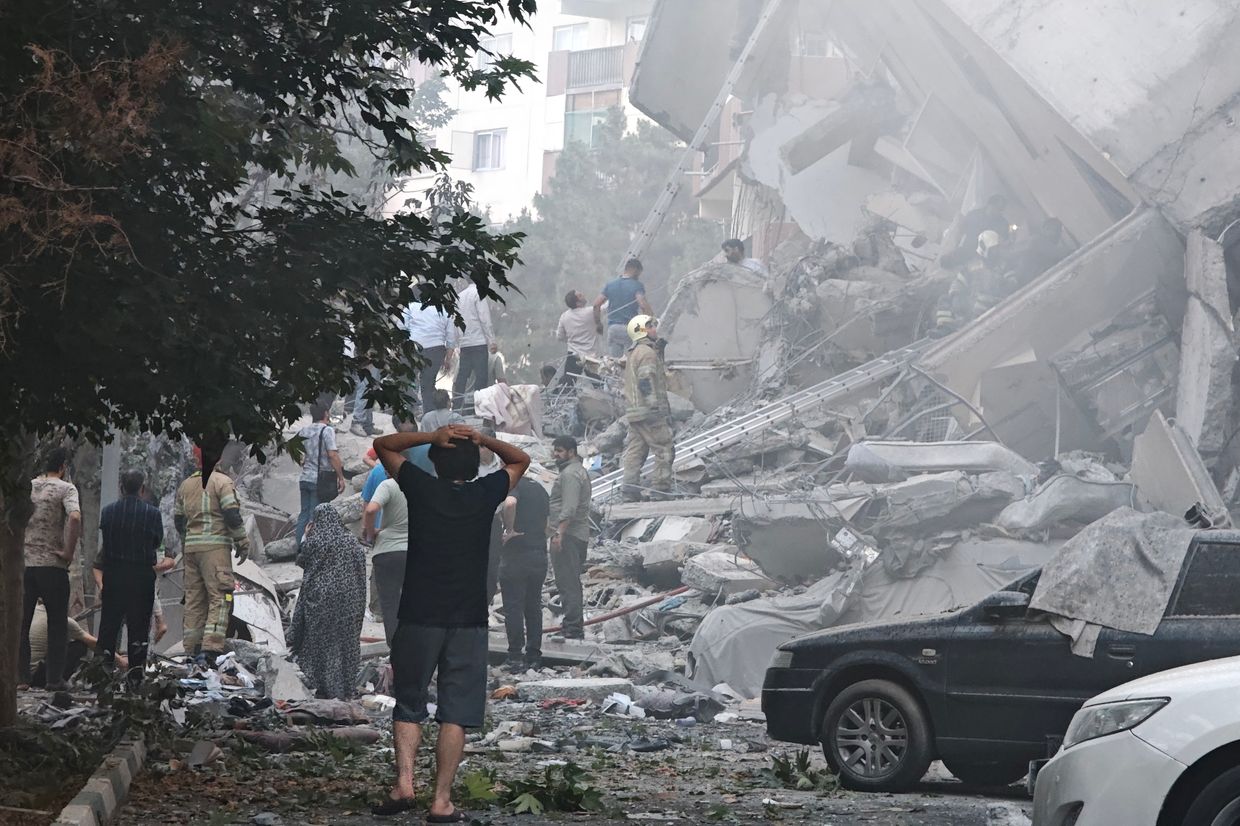


Ukraine's Foreign Ministry has urged its citizens to leave Israel and Iran "as soon as possible" due to a serious deterioration in regional security, the ministry said in a statement on June 17.
"In connection with a significant worsening of the security situation in the Middle East, the Ministry of Foreign Affairs strongly recommends that Ukrainian citizens leave the territory of the State of Israel and the Islamic Republic of Iran as soon as possible, until the situation stabilizes," the statement read.
Ukrainians who remain in either country are advised to remain vigilant, monitor updates from local authorities, follow air raid alerts, adhere to safety protocols, and always carry valid identification documents.
The Ukrainian embassies in Israel and Iran are compiling evacuation lists and preparing potential evacuation plans. Information about available evacuation routes is being published on the official Facebook pages of the Ukrainian embassies in Israel and Iran.
The Israeli military launched a large-scale attack on Iran's nuclear and military infrastructure on June 13, which were followed by retaliatory ballistic missile strikes from Tehran. Israel has since struck key defense targets in Tehran, including the headquarters of Iran's Defense Ministry.
 The Kyiv IndependentTim Zadorozhnyy
The Kyiv IndependentTim Zadorozhnyy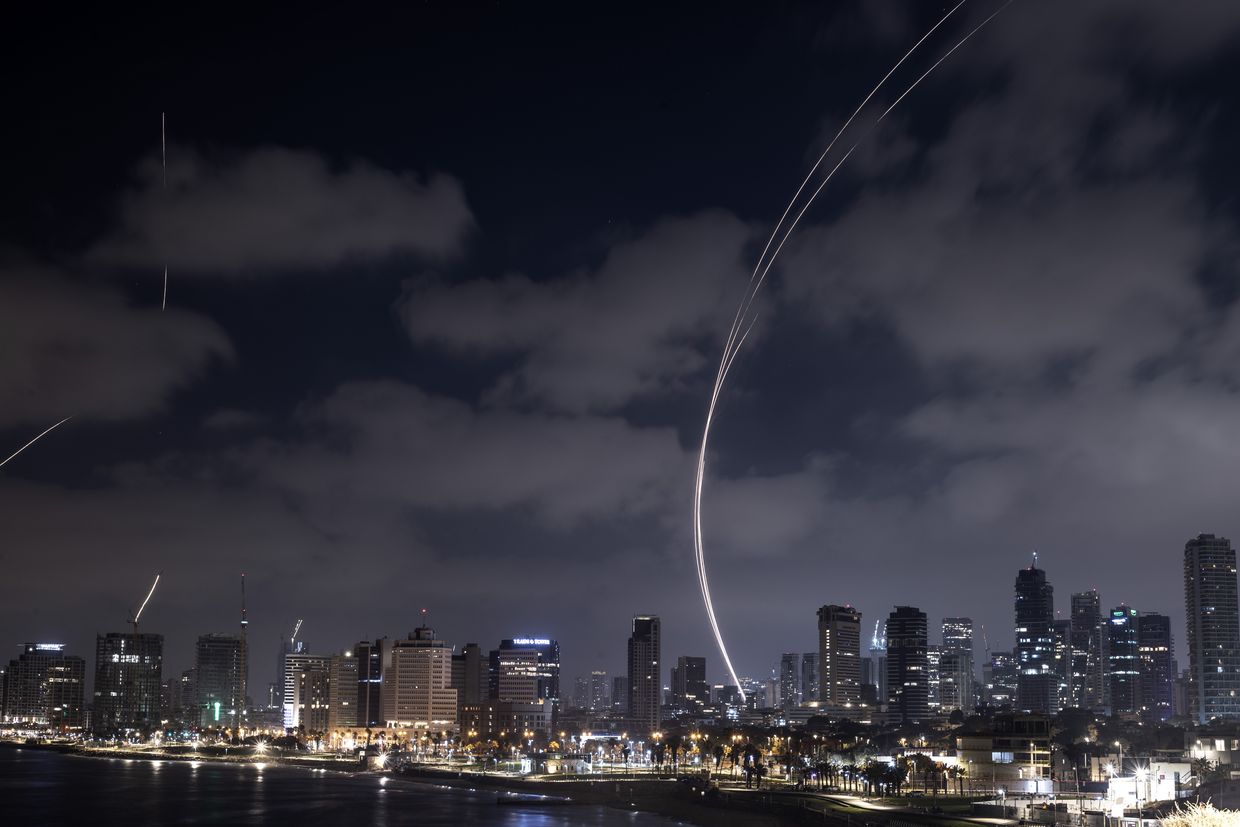


Iran's Islamic Revolutionary Guard Corps (IRGC) said it used a new method to breach Israel's air defenses during a missile attack early on June 16, that killed at least eight people, Reuters reports.
According to the IRGC, Iranian missiles were guided in a way that caused Israeli interceptor missiles to target each other, confusing Israel's integrated defense system, which includes Iron Dome, David's Sling, and Arrow platforms.
It did not provide any further details.
Ballistic missiles are rocket-powered and are launched high into the atmosphere before arcing back down onto their target.
They're only guided during the initial stages of launch, so they can be less accurate than cruise missiles, but have the advantage of reaching incredibly high speeds – sometimes more than 3,200 kilometers per hour – as they approach their targets.
Israel's Defense Forces (IDF) reported for the first time that its systems had an 80-90% success rate intercepting Iran's ballistic missiles, while roughly 5-10% penetrated the shield and struck populated areas, according to the Jerusalem Post.
The strike came three days after Israel launched a sweeping aerial campaign against Iranian nuclear and military facilities, killing several high-ranking officials, including IRGC aerospace commander Amir Ali Hajizadeh.
Kyiv has expressed support for Israel, describing Iran as a "source of instability in the region and beyond," citing Tehran's extensive military cooperation with Russia.
Since 2022, Iran has supplied Moscow with thousands of Shahed kamikaze drones and short-range ballistic missiles for use against Ukraine. Russia, for its part, has condemned the Israeli air strikes on Iran as "unprovoked aggression" and backed calls for restraint.
Israel is home to one of the largest Russian-speaking populations outside the former Soviet Union, with approximately 1 million people — or 15% of the total population — identifying as Russian-speaking. Israel has historically maintained relatively friendly ties with Russia.
U.S. President Donald Trump said on June 15 that he is considering Russian President Vladimir Putin as a possible mediator between Israel and Iran.
As of June 16, Iran's Health Ministry claims 224 people have been killed since the Israeli air campaign began on June 13 — 90% of them civilians, according to Tehran. Israel has not confirmed the civilian casualty figure, and independent verification remains difficult.
 The Kyiv IndependentTim Zadorozhnyy
The Kyiv IndependentTim Zadorozhnyy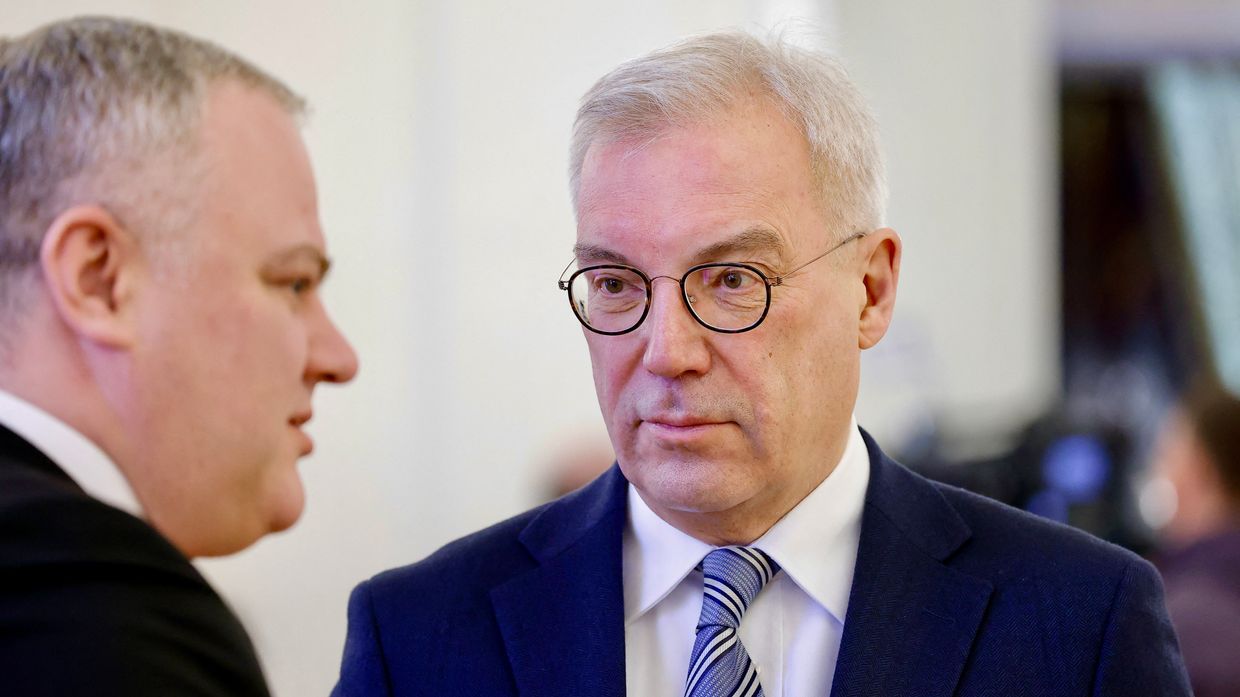


President Volodymyr Zelensky on June 15 condemned Russia's latest mass attack against Ukraine, calling the strikes on energy infrastructure "a spit in the face of everything the international community is trying to do to stop this war."
Earlier in the day, Russia targeted the city of Kremenchuk in Poltava Oblast with a combined missile and drone attack, damaging energy and agricultural facilities. The strike involved nearly 200 drones and missiles, including both cruise and ballistic missiles. The attack came shortly after a phone call between U.S. President Donald Trump and Russian President Vladimir Putin.
In his nightly address, Zelensky said the attack on Kremenchuk was "deliberately and treacherously planned to target our civilian infrastructure" and that Russia intended to damage energy facilities.
"This is Russia's spit in the face of everything the international community is trying to do to stop this war," Zelensky said in his nightly address.
"It happened right after Putin's conversation with Trump. After the Americans asked us not to strike Russian energy facilities. At the same time as Putin tries to portray himself as a mediator for the Middle East ... The level of cynicism is staggering."
Following his call with Putin, Trump claimed he would be "open" to the Russian president acting as a mediator in the rapidly escalating conflict between Israel and Iran. Zelensky rejected the idea of Putin — who has waged war against Ukraine for over 10 years and has taken no steps towards a lasting ceasefire — playing the role of peacemaker.
Putin "is war itself," Zelensky said, urging the international community not to fall for "Russian manipulation and lies."
Zelensky also warned that Russia may be planning additional attacks on Ukraine's energy sector, including nuclear power infrastructure. According to the president, Ukrainian intelligence agencies have obtained evidence of Russia's threat and shared the information with the International Atomic Energy Agency (IAEA) and the Trump administration.
"Russia is planning further attacks on our energy sector — attacks that may be less visible to the world right now because all eyes are on the situation in the Middle East," he said.
Throughout the full-scale war, Russia has attempted to disrupt Ukraine's power grid through targeted attacks on energy infrastructure. After rejecting a U.S. proposal for a 30-day unconditional ceasefire in March, Moscow instead agreed to a month-long ceasefire on energy attacks.
Russia subsequently violated the partial ceasefire, which ended in in April. The Kremlin continues to refuse calls for an unconditional truce.
 The Kyiv IndependentKateryna Hodunova
The Kyiv IndependentKateryna Hodunova
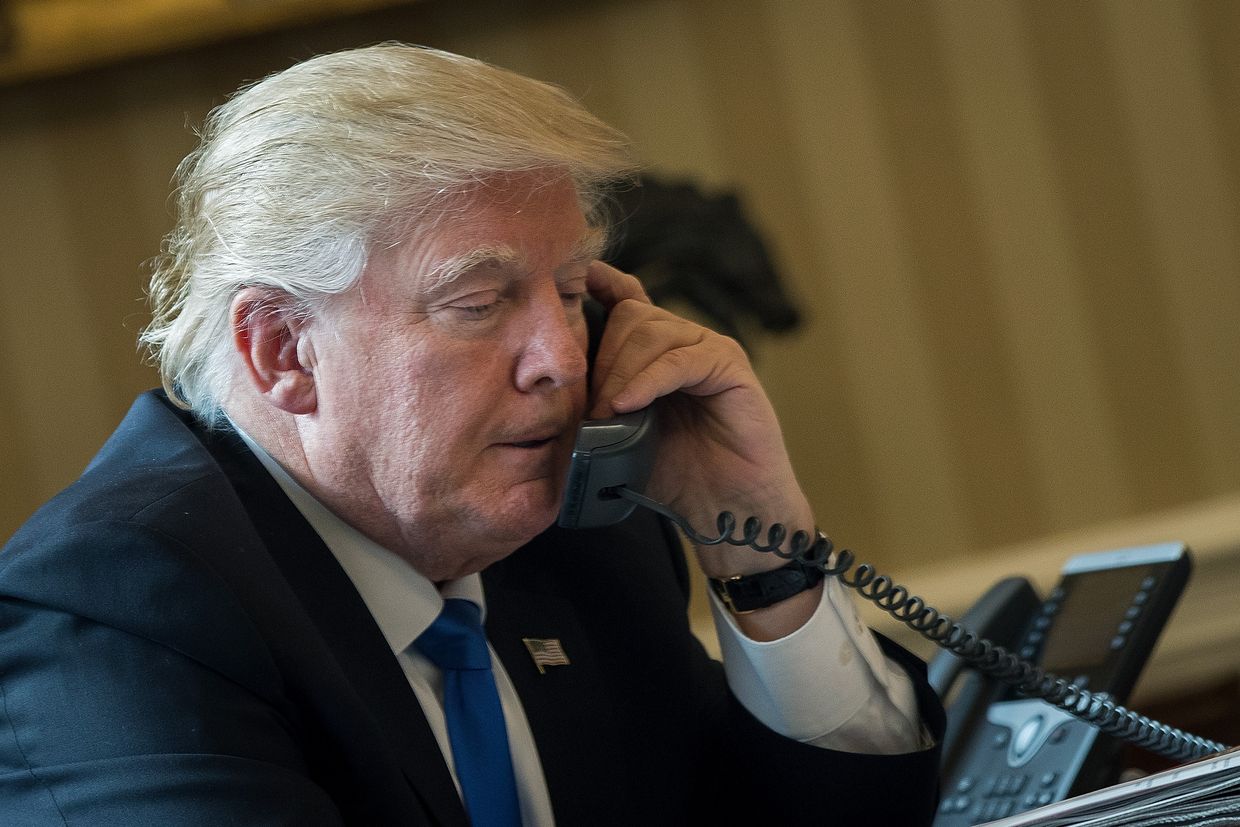

Editor's note: This is a developing story and is being updated.
U.S. President Donald Trump and Russian President Vladimir Putin held a phone call on June 14 in which the two leaders discussed Ukraine and the conflict between Israel and Iran.
"Another telephone conversation between Russian President Vladimir... Putin and U.S. President Donald Trump," Russian state media reported, citing Putin's foreign policy aide Yuri Ushakov.
The phone call took place on Trump's birthday, as the U.S. president marks the occasion with a military parade in Washington.
The two leaders discussed Russia's ongoing war against Ukraine and the situation in the Middle East as Israel and Iran continue to exchange aerial attacks.
"The exchange of opinions naturally focused on the dangerous escalation of the situation in the Middle East," Ushakov said.
The phone call between Trump and Putin lasted 50 minutes, he said.
"Russia expressed its readiness to continue negotiations with the Ukrainians, as agreed, after June 22. Donald Trump took note of this information and once again noted his interest in a speedy end to the Russian-Ukrainian conflict," Ushakov said, according to Russian state media.
Trump later confirmed he held a phone call with Putin, saying that the main topic the two leaders covered was Iran.
"President Putin called this morning to very nicely wish me a Happy Birthday, but to more importantly, talk about Iran, a country he knows very well," Trump said in a post to Truth social.
Trump noted that the phone call between the two leaders lasted about one hour, with Putin congratulating Trump on his birthday.
"Much less time was spent talking about Russia/Ukraine, but that will be for next week. He is doing the planned prisoner swaps — large numbers of prisoners are being exchanged, immediately, from both sides," Trump said.
The latest round of prisoner swaps occurred on June 14. Ukraine mainly returned severely wounded and seriously ill soldiers, many of whom were captured during the defense of Mariupol in 2022.
Russia has intensified drone and missile attacks on Ukraine following two rounds of largely inconclusive peace talks between Moscow and Kyiv in Turkey on May 16 and June 2.
Israel and Iran continued to exchange attacks on June 14, more than 24 hours after Israel launched its first strikes on Iran's nuclear sites and military leadership.
Trump has said that the U.S. military is on high alert and watching for any kind of retaliation, adding that the U.S. will respond to defend itself or Israel if Iran strikes back.
 The Kyiv IndependentYuliia Taradiuk
The Kyiv IndependentYuliia Taradiuk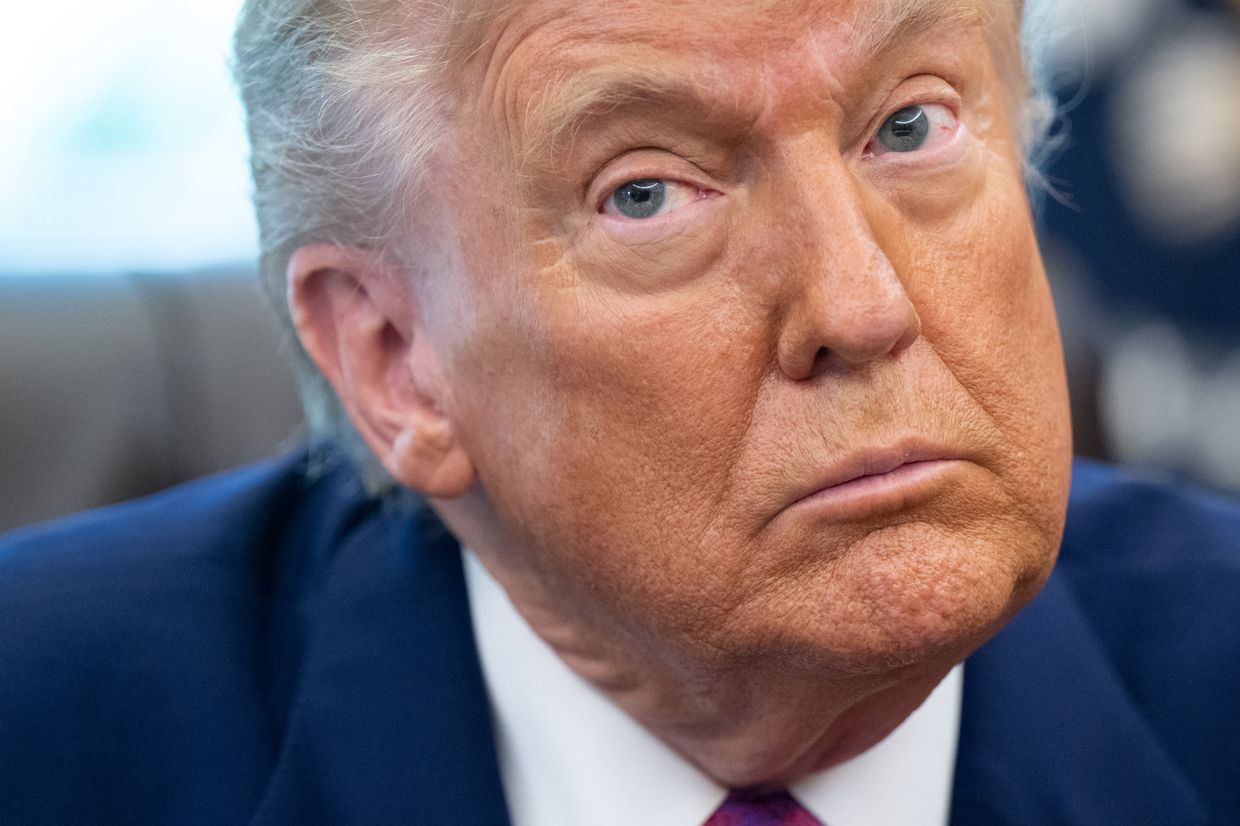
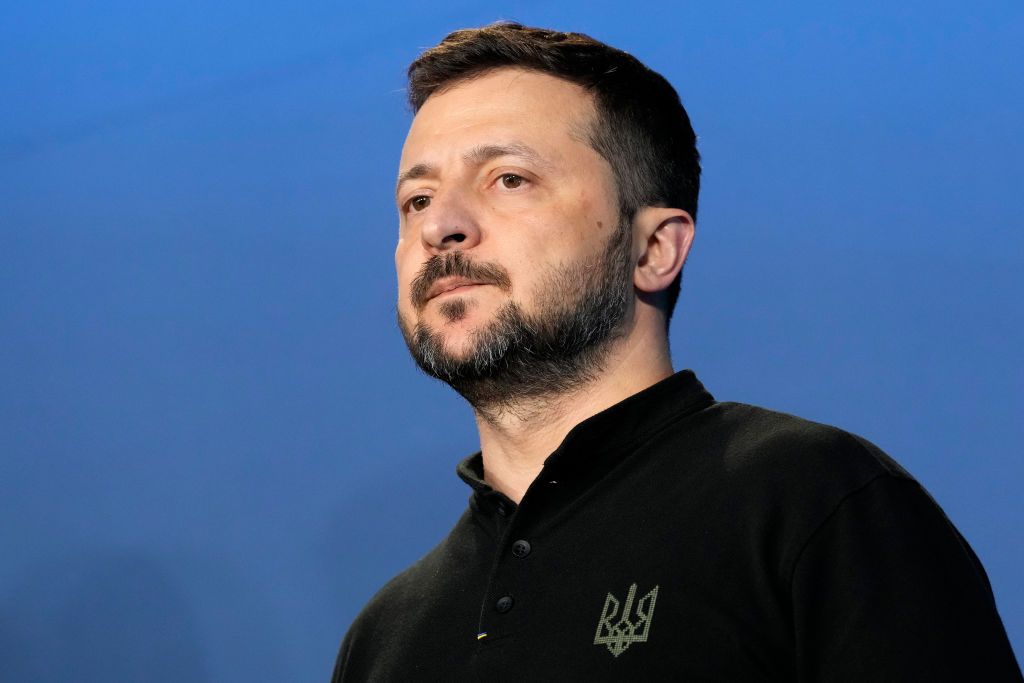

President Volodymyr Zelensky's office has confirmed plans for a high-stakes meeting with U.S. President Donald Trump at the upcoming G7 summit on June 17, according to the Kyiv Independent journalist who attended a closed-door briefing with Zelensky on June 13.
"Both teams are working to ensure we meet," Zelensky said.
The meeting would mark the third in-person encounter between the two leaders during Trump's second term in the White House. Their most recent meeting took place on April 26 at St. Peter's Basilica in the Vatican, where they spoke privately on the sidelines of Pope Francis' funeral. Both sides described the meeting as productive and constructive, though details remained sparse.
Earlier in February, Zelensky met Trump and Vice President JD Vance in the White House when the infamous tense Oval Office exchange erupted, with Trump criticizing Kyiv's perceived lack of gratitude for U.S. support
Zelensky said his priority is to discuss with Trump sanctions against Russia, peace talks, weapons purchase, and U.S.-Ukraine economic cooperation.
"The United States communicates with the EU on sanctions at the level of senators and congressmen. But I want to raise this issue personally with President Trump," Zelensky said.
"There are steps forward we can take — but we need the political will of the U.S. president, if he wants."
He added that Ukraine has long prepared a "strong" weapons package to purchase from Washington. "Only at the presidential level can we finalize it," Zelensky said ahead of the G7 summit.
Russian offensives in Sumy, Dnipropetrovsk oblastsZelensky said that heavy fighting is ongoing along Ukraine's northeastern border. Russian forces have concentrated around 53,000 troops in the Sumy sector, pushing into multiple settlements such as Andriivka, Kindrativka, and Oleksiivka.
According to the open-source monitoring group DeepState, Russian troops have been advancing along the border in Sumy Oblast, with the current front line lying just about 20 kilometers away from the regional capital of Sumy.
According to media reports, Russia exploited a thinning of Ukraine's front-line forces, which were later replaced by newer, under-equipped formations.
Zelensky said that Russia only pushed seven kilometers deep into Sumy, adding that the Russian army "has been stopped there."
Zelensky added that Ukrainian forces had successfully struck Russian positions in the neighboring Russian Kursk Oblast, near Tyotkino, to stall Russian momentum and split their offensive groups.
In Dnipropetrovsk Oblast, Zelensky confirmed that small Russian reconnaissance groups had briefly crossed into Ukrainian territory — likely for propaganda purposes. One six-man unit was reportedly eliminated one kilometer from the administrative border.
"For them (Russia), it's an important story, to take a photo, video," Zelensky said. "That's why they are launching small working groups to do just that."
Earlier, the Kremlin has claimed the operations in Dnipropetrovsk are part of an effort to create a so-called "buffer zone." Ukrainian officials have rejected these claims as disinformation.
 The Kyiv IndependentChris York
The Kyiv IndependentChris York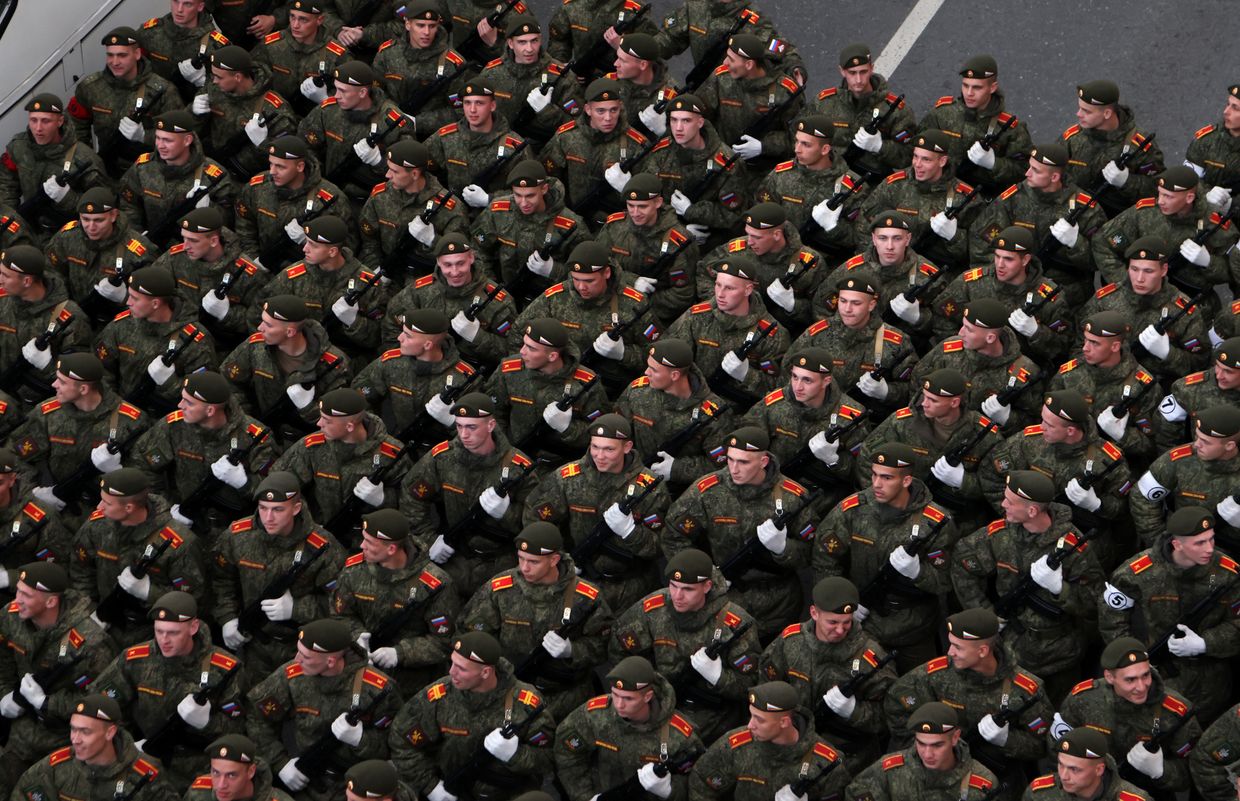
Israel-Iran war hits Ukraine's defenses When speaking about the recent escalation between Israel and Iran in the Middle East, Zelensky said that the subsequent regional tension had driven up oil prices, enhancing Russia's war financing through energy exports.
"This factor clearly doesn't help us," he said, adding that Ukraine will urge Washington to implement stricter price caps on Russian oil at the G7.
He further revealed that U.S. weapons previously allocated to Ukraine, including 20,000 air-defense interceptors used to counter Iranian-designed Shahed drones, were redirected to support Israel ahead of its recent strikes on Iran.
"That was a serious blow... We were counting on these missiles," Zelensky said.
Zelensky warned that Ukraine must not become "a bargaining chip" in larger geopolitical negotiations involving the U.S., Russia, and the Middle East. Russia and Iran have deepened their cooperation since 2022, with Iran supplying weapons and technology to boost Moscow's war machine.
"I was constantly afraid that we could become a bargaining chip, just one factor in the negotiations between the United States and the Russians. So, along with the situation with Iran, the situation with Ukraine was also a factor. They are really dependent on each other," he said.
Europe's indecisivenessZelensky voiced concerns about a slowdown in Western diplomatic momentum, particularly around the "coalition of the willing" initiative led by France and the UK.
Earlier, media reported that the "coalition of the willing," aimed at offering post-ceasefire security guarantees to Ukraine, has faced delays due to the absence of U.S. commitment.
"Europe hasn't yet decided what to do if America steps back," he said. "Their energy depended on U.S. resolve. Without it, things slow down."
Still, Zelensky made clear that Ukraine would not accept any ultimatums from Moscow amid the uncertainty of Western support. He described the latest Russian ceasefire proposals as capitulation.
"They pretend to be ready for talks, but all they offer is an ultimatum," Zelensky said. "We won't go along with that. Not now, not ever."
Zelesnky also expressed optimism that the European Union's 18th sanctions package would pass later this month and said he would personally push for closer U.S.-EU coordination at the G7.
 The Kyiv IndependentChris York
The Kyiv IndependentChris York
Prisoner exchanges and prospects for talks Zelensky confirmed that prisoner exchanges with Russia are continuing and that another round of direct peace talks with Moscow may take place soon after.
"We expect that they (prisoner swaps) can be completed on the 20th or 21st (of June)," he said.
Over the week, Ukraine and Russia held a series of exchanges under an agreement reached during peace talks in Istanbul. Most recently, on June 12, Ukraine brought home another group of severely wounded and seriously ill service members.
The June 12 operation followed a similar swap two days earlier, both conducted without immediate disclosure of the number of released prisoners.
The June exchanges are part of a phased prisoner swap arrangement agreed during the second round of direct talks between Ukrainian and Russian delegations in Istanbul on June 2. While no political breakthroughs emerged from the discussions, both sides agreed to continue exchanging POWs and repatriating the remains of fallen soldiers.
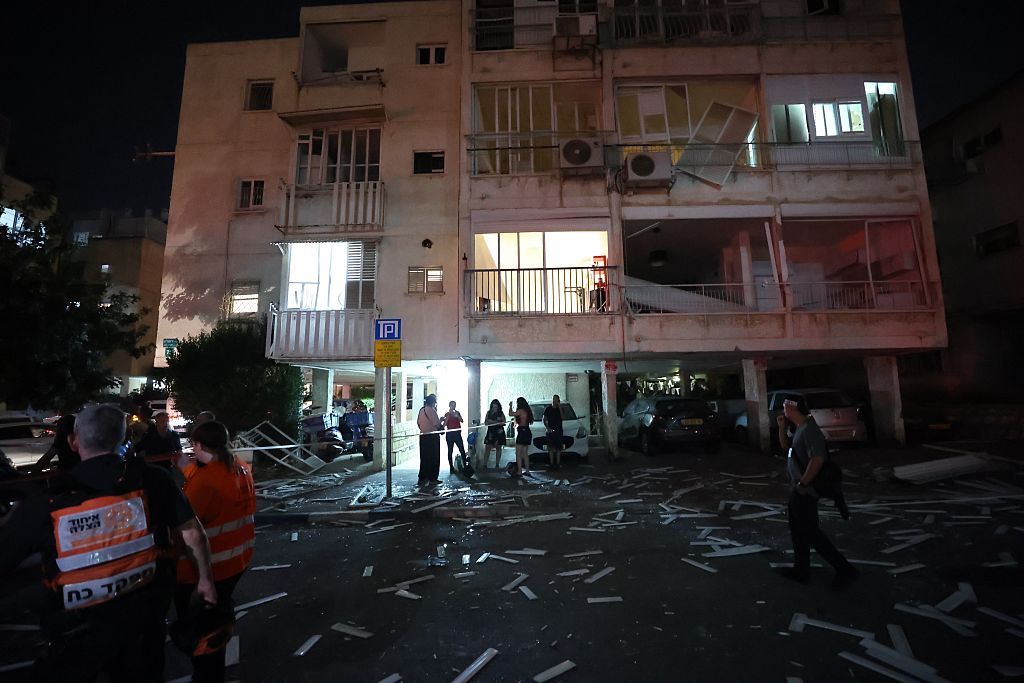

Editor's note: This is a breaking story and is being updated.
Iran and Israel continued to exchange attacks on June 14, more than 24 hours after Israel launched its first strikes on Iran's nuclear sites and military leadership.
According to recent reports, there are civilian casualties in both countries. In Israel, two people have been killed and more than 40 injured since Iran launched its initial wave of retaliatory strikes.
In Iran, more than 70 people have been killed and 329 injured, according to the country's United Nations ambassador, Amir Saeid Iravani.
Responding to Israel's preemptive strikes on Iran overnight on June 13, Tehran responded with multiple waves of ballistic missiles, as well as an earlier barrage of drones.
The drone attack followed heavy air strikes launched by Israel against Iran, targeting the country's nuclear program and reportedly killing Hossein Salami, the commander-in-chief of the Islamic Revolutionary Guard Corps (IRGC), and other top officials.
Amid the escalation, Prime Minister Benjamin Netanyahu vowed to respond to the most recent attack.
"More is on the way. The (Iranian) regime does not know what hit them, or what will hit them. It has never been weaker," Netanyahu said in an address.
Clear, dramatic footage captures active missile intercepts over Tel Aviv, including impacts that struck locations downtown. pic.twitter.com/ISxbIQ6CU0
— GMI (@Global_Mil_Info) June 13, 2025
U.S. President Donald Trump said earlier in the day that the U.S. military is on high alert and watching for any kind of retaliation, adding that the U.S. will respond to defend itself or Israel if Iran strikes back.
Before the attacks, Trump emphasized that despite tensions, he is committed to avoiding conflict and prefers a diplomatic solution to Iran's nuclear aspirations. "I want to have an agreement with Iran," Trump said, referring to ongoing Iran-U.S. nuclear talks in Oman.
Iran insists its nuclear program is for peaceful purposes and has expressed willingness to accept limited restrictions in exchange for the lifting of sanctions.
Beyond the Middle East, Iran has emerged as a key ally of Russia in its war against Ukraine, supplying Moscow with drones used in attacks on Ukrainian cities. Iran's Islamic Revolutionary Guard Corps (IRGC) confirmed on June 13 that its aerospace commander, Amir Ali Hajizadeh, who led Iran's Shahed drone supply to Russia, was killed in the strike on June 13.
Just hours after Russia launched its own missile and drone assault on Ukraine, Russian President Vladimir Putin decried the "numerous civilian casualties" in Iran and condemned Israel's actions as violations of the UN Charter and international law.
Following the initial strikes by Israel, Kyiv expressed concern over the security situation in the Middle East after Israeli air strikes against Iran, but stressed that Tehran remains a "source of problems" in the region "and beyond."
 The Kyiv IndependentChris York
The Kyiv IndependentChris York


Kyiv on June 13 expressed concern over the security situation in the Middle East after Israeli air strikes against Iran, but stressed that Tehran remains a "source of problems" in the region "and beyond."
The statement follows what Israel called a "preemptive" strike against Iran overnight on June 13, targeting the country's nuclear program and reportedly killing top military officials.
"We would like to remind you that the Iranian regime supports Russia in its illegal war of aggression against Ukraine and provides Moscow with weapons to kill Ukrainians," the Ukrainian Foreign Ministry said in a statement.
Along with North Korea, Iran has been a key ally to Russia during its full-scale war against Ukraine, providing thousands of Shahed strike drones and short-range ballistic missiles.
Ukraine has called upon the international community "to take joint and decisive action" and deter a "group of aggressive regimes — Russia, Iran, and North Korea."
Kyiv nevertheless also warned that further hostilities could destabilize the region with "negative consequences for international security and global financial stability, especially in oil markets."
Israeli strikes were quickly followed by a surge in oil prices, Russia's key export commodity, with Brent and Nymex crude prices jumping by more than 10%.
"We are convinced that restoring peace and stability in the Middle East will serve the interests not only of the region but also of the entire international community," the Ukrainian Foreign Ministry said.
Iran has pledged a response to Israeli air strikes and accused the United States of "also being responsible for the dangerous consequences of this reckless escalation." The Trump administration has acknowledged it knew about the operation in advance but denied any involvement.
According to the Israel Defense Forces (IDF), Tehran has already launched over 100 drones against Israel in response.
The attacks took place amid escalating tensions in the Middle East and U.S. President Donald Trump's push to find a diplomatic solution to Iran's nuclear aspirations. A round of indirect U.S.-Iranian negotiations in Oman was scheduled for June 15.
Russia has condemned Israel's attacks as "unprovoked aggression" and a violation of the U.N. Charter.
 The Kyiv IndependentLucy Pakhnyuk
The Kyiv IndependentLucy Pakhnyuk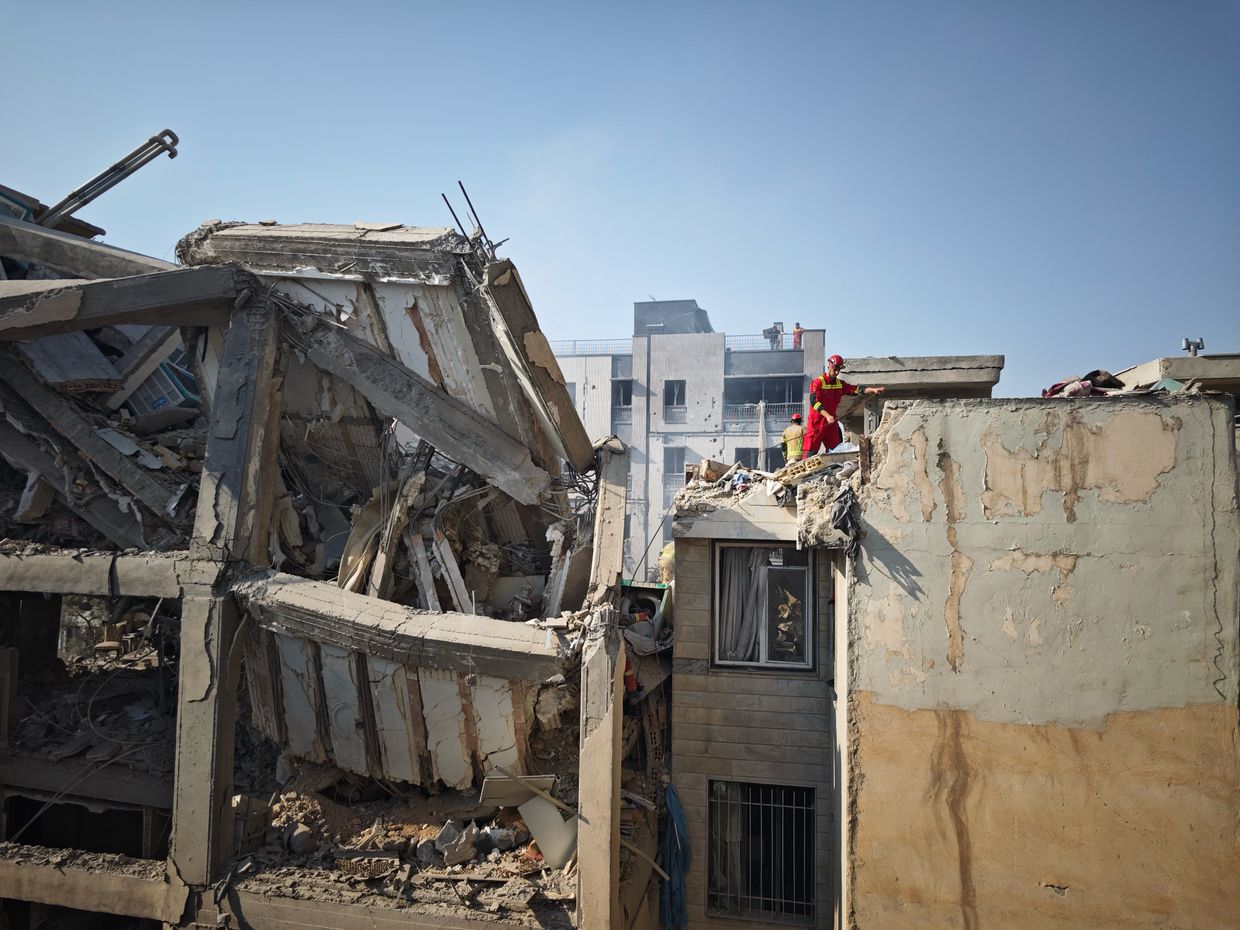
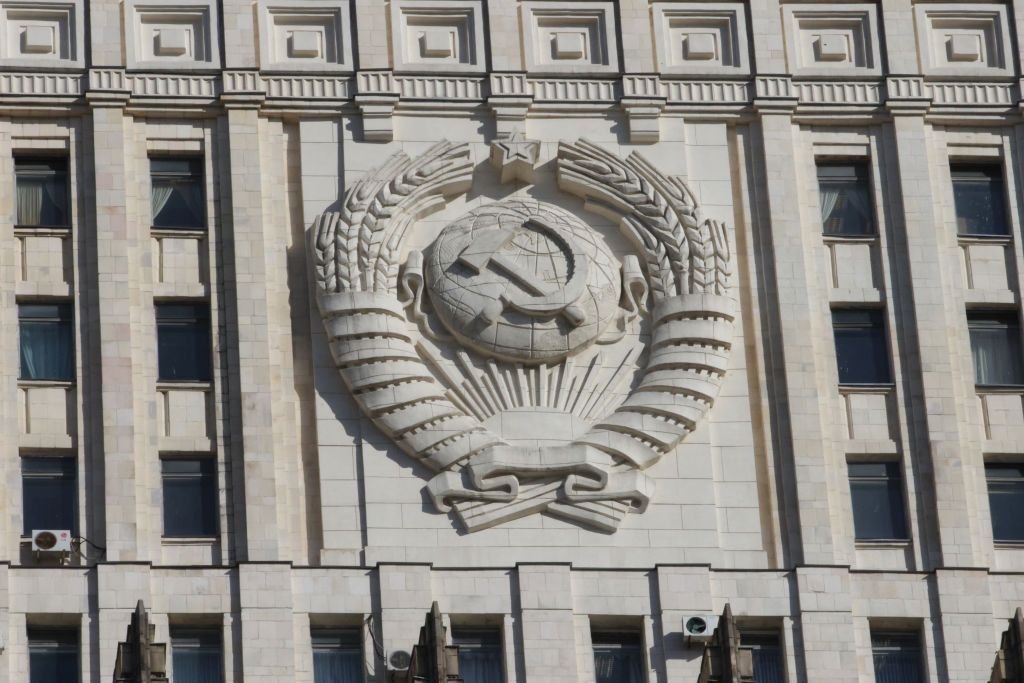

Editor's note: This story was updated to include a comment from Ukrainian Foreign Ministry spokesperson Heorhii Tykhyi.
Russia's Foreign Ministry expressed "extreme concern" on June 13 over Israel's recent strike on Iran, calling it a dangerous escalation that violated the United Nations Charter and international law.
Moscow, which currently wages war against Ukraine, the largest conflict on the European continent since World War II, condemned Israel's attack as an "unprovoked aggression."
Earlier on June 13, Israeli Prime Minister Benjamin Netanyahu said that Israeli forces had launched "Operation Rising Lion," a preemptive strike targeting Iran's nuclear program. In a televised address, Netanyahu claimed Israeli forces struck Iran's main nuclear enrichment site in Natanz and targeted key nuclear scientists.
In a statement, the Russian Foreign Ministry denounced Israel's overnight attacks as "unprovoked military strikes" targeting a sovereign U.N. member's nuclear facilities. The ministry said the international community "cannot remain indifferent" to such actions that undermine global and regional stability.
The statement called it "cynical" that the strikes occurred during a session of the International Atomic Energy Agency and just before another round of indirect Iran–U.S. talks in Oman, scheduled for June 15.
Moscow said this timing undermined diplomatic efforts aimed at reducing confrontations over Tehran's nuclear program.
The ministry accused Western countries of fueling "anti-Iranian hysteria" in international forums and warned that military solutions cannot resolve the Iranian nuclear issue. It urged all parties to show restraint to avoid a full-scale regional war.
Ukrainian Foreign Ministry spokesperson Heorhii Tykhyi responded to Russia's statement, saying it was "one of those awkward moments when the Russian Foreign Ministry comments on the Middle East but forgets to look at the mirror."
Russian condemnation comes as Moscow and Tehran continue to strengthen their ties. Iran's parliament ratified on May 21 a 20‑year strategic partnership agreement with Russia, deepening military and economic cooperation.
While the pact does not include mutual defense, it outlines joint military exercises, energy cooperation, and interbank links designed to circumvent Western sanctions.
Iran has also supplied Russia with thousands of Shahed drones and ballistic missiles used against Ukraine throughout Moscow's war.
Previously, Moscow claimed its willingness to remove excess nuclear material from Iran, converting it into reactor fuel in support of U.S.–Iran nuclear talks. Kremlin spokesperson Dmitry Peskov said Russia is prepared to assist if both Iran and the U.S. find its help valuable.
 The Kyiv IndependentLucy Pakhnyuk
The Kyiv IndependentLucy Pakhnyuk


Global oil prices soared on June 13 after Israel launched a strike on Iran, triggering fears of a broader conflict in the energy-rich Middle East that could disrupt global supplies, the BBC reported.
The spike threatens to undermine Western efforts to choke off a vital revenue stream for Russia, which relies heavily on oil profits to sustain its war in Ukraine.
According to the BBC, Brent and Nymex crude prices jumped by more than 10% following the Israeli attack, reaching their highest levels since January. Prices later stabilized but remained about 7.5% higher, with Brent at $74.50 a barrel and Nymex at $73.20.
The price surge comes at a crucial time for Ukraine and its Western allies, who are intensifying efforts to minimize the Kremlin's oil revenues — the backbone of Russia's wartime economy.
President Volodymyr Zelensky urged the European Union on June 11 to impose tougher sanctions on Russia, including a more aggressive price cap on oil exports.
"A ceiling of $45 per barrel of oil is better than $60, that's clear," Zelensky said at the Ukraine-Southeast Europe Summit in Odesa. "But real peace will come with a ceiling of $30. That's the level that will really change the mindset in Moscow."
The EU's current $60 per barrel cap, introduced in December 2022, prohibits Western companies from shipping, insuring, or servicing Russian oil sold above the threshold. While this measure has curtailed some of Russia's profits, the Kremlin continues to earn significant revenue, especially when market prices rise.
European Commission President Ursula von der Leyen said on June 10 that the EU is considering lowering the cap to $45, a move that will be discussed at the G7 summit in Canada between June 15 and 17. According to Reuters, most G7 countries, excluding the U.S. and Japan, are prepared to proceed with the reduction regardless of Washington’s stance.
Israeli Prime Minister Benjamin Netanyahu said early on June 13 that Israeli forces had launched "Operation Rising Lion," a preemptive strike targeting Iran's nuclear program. In a televised address, Netanyahu claimed Israeli forces struck Iran's main nuclear enrichment site in Natanz and targeted key nuclear scientists.
 The Kyiv IndependentWojciech Jakóbik
The Kyiv IndependentWojciech Jakóbik


Editor's note: The article was updated with Trump's statement on Truth Social.
U.S. President Donald Trump said on June 13 that he was aware of Israel's plans to conduct strikes on Iran in advance and that Washington is watching for any signs of retaliation by Tehran, Fox News reported.
"Iran cannot have a nuclear bomb and we are hoping to get back to the negotiating table. We will see. There are several people in leadership that will not be coming back," Trump told Fox News' anchor Bret Baier.
The comments come after Israel launched heavy air strikes against 100 sites in Iran, targeting the country's nuclear program and reportedly killing Hossein Salami, the commander-in-chief of the Islamic Revolutionary Guard Corps (IRGC), and other top officials.
In a statement released by the State Department, U.S. Secretary of State Marco Rubio said that the United States was not involved in the strikes on Iran, calling it a "unilateral action."
The U.S. has reached out to at least one Middle Eastern ally to say that the strike is going to happen, but that Washington was not involved, Fox News reported.
Trump said the U.S. military is on high alert and watching for any kind of retaliation, adding that the U.S. will respond to defend itself or Israel if Iran strikes back.
The Israel Defense Forces (IDF) said that Tehran had already launched over 100 drones against Israel, which are expected to reach their targets within the next few hours.
On the Truth Social media platform, Trump said he gave Iran a "chance after chance to make a deal" and had warned Tehran that "it would be much worse than anything they know" if there is no agreement.
"Certain Iranian hardliners spoke bravely, but they didn't know what was about to happen. They are all dead now, and it will only get worse!" Trump wrote.
The U.S. president added that there is still time to stop the slaughter, calling upon Iran to make a deal "before there is nothing left."
Before the attacks, Trump emphasized that despite tensions, he is committed to avoiding conflict and prefers a diplomatic solution to Iran's nuclear aspirations. "I want to have an agreement with Iran," Trump said, referring to ongoing Iran-U.S. nuclear talks in Oman.
Iran insists its nuclear program is for peaceful purposes and has expressed willingness to accept limited restrictions in exchange for the lifting of sanctions.
In turn, the International Atomic Energy Agency released a report highlighting Iran’s failure to comply with its obligations to fully disclose activities at its nuclear facilities.
Beyond the Middle East, Iran has emerged as a key ally of Russia in its war against Ukraine, supplying Moscow with drones used in attacks on Ukrainian cities.
 The Kyiv IndependentLucy Pakhnyuk
The Kyiv IndependentLucy Pakhnyuk


Iran launched over 100 drones against Israel, all of which were intercepted outside of Israeli airspace, Ynet News reported on June 13, citing Israeli military spokesperson Effie Defrin.
The drone attack follows heavy air strikes launched by Israel against Iran, targeting the country's nuclear program and reportedly killing Hossein Salami, the commander-in-chief of the Islamic Revolutionary Guard Corps (IRGC), and other top officials.
Israel said it had deployed some 200 aircraft in its "preemptive" attack overnight on June 13, dropping 330 munitions over 100 sites.
The full extent of the consequences was not immediately clear. Multiple explosions were reported in Tehran as videos posted on social media purportedly show fire burning in multiple locations of the Iranian capital.
Open-source intelligence researchers have shared alleged footage of Shahed kamikaze drones flying in the direction of Israel. Tehran has provided thousands of these drones to Russia for use against Ukrainian cities.
Iranian Shahed-136 attack drone headed westbound over Iraq, towards Israel.
— OSINTtechnical (@Osinttechnical) June 13, 2025
Iran reportedly launched more than 100 attack drones this morning, as part of its opening wave of strikes on Israel. pic.twitter.com/0SU3aLR9ZX
Iran's Supreme Leader Ali Khamenei vowed to enact "severe punishment" in response to the attack, accusing the United States for "also (being) responsible for the dangerous consequences of this reckless escalation."
In a statement released by the State Department, U.S. Secretary of State Marco Rubio said that the United States was not involved in the strikes on Iran, calling it a "unilateral action."
The U.S. Embassy in Israel instructed its employees and family members to take shelter until further notice.
Jordan has announced it had closed its airspace "as a precaution against any risks resulting from the regional escalation."
The attacks are taking place amid escalating tensions in the Middle East. In April 2024, Iran launched 170 drones and 150 missiles against Israel, with an overwhelming majority being shot down outside of Israel with the assistance of Western partners.
The attack was a response to Israel’s strike on an Iranian consulate in Syria on April 1 as part of the broader Israel-Hamas war.
 The Kyiv IndependentLucy Pakhnyuk
The Kyiv IndependentLucy Pakhnyuk